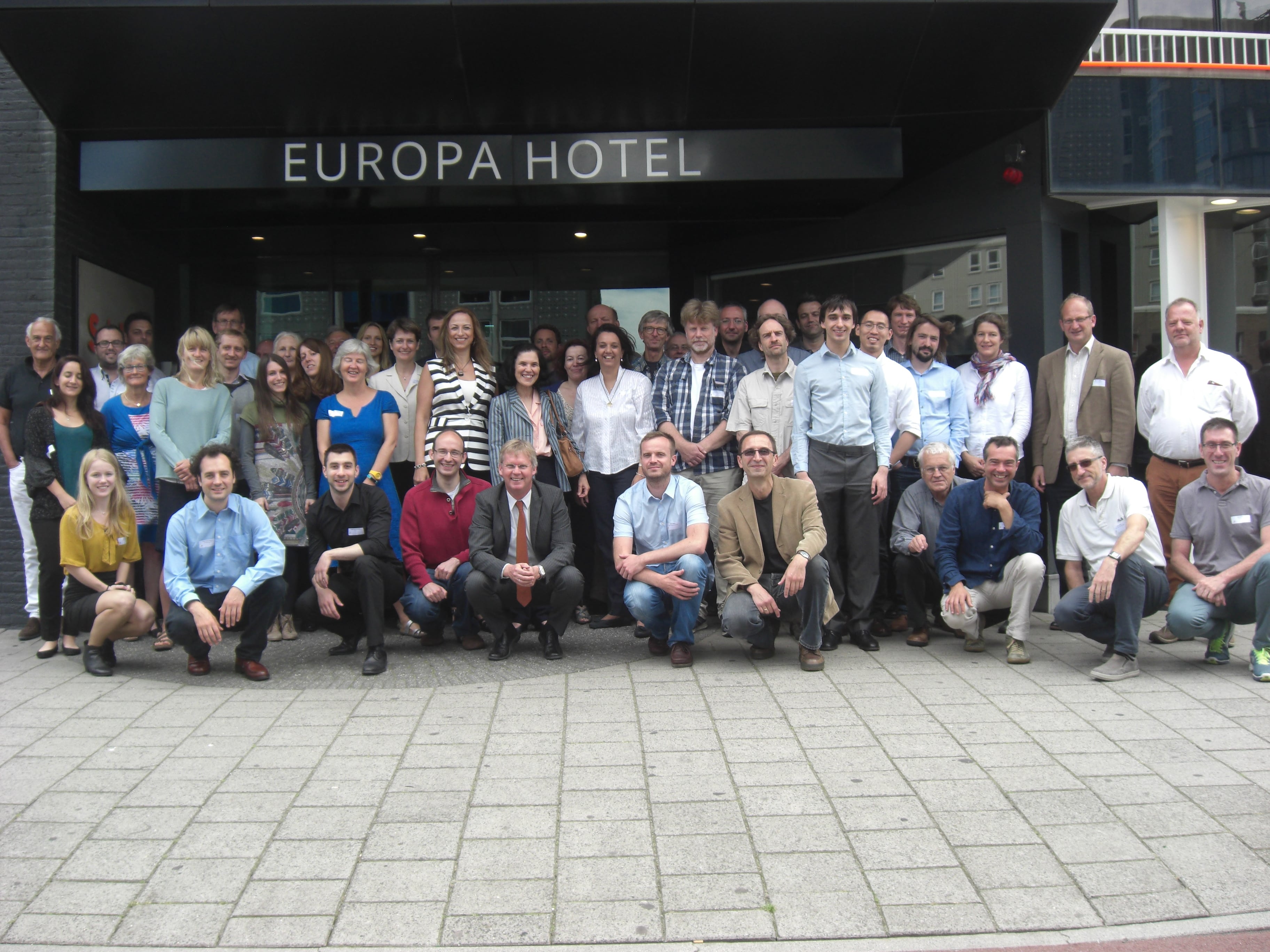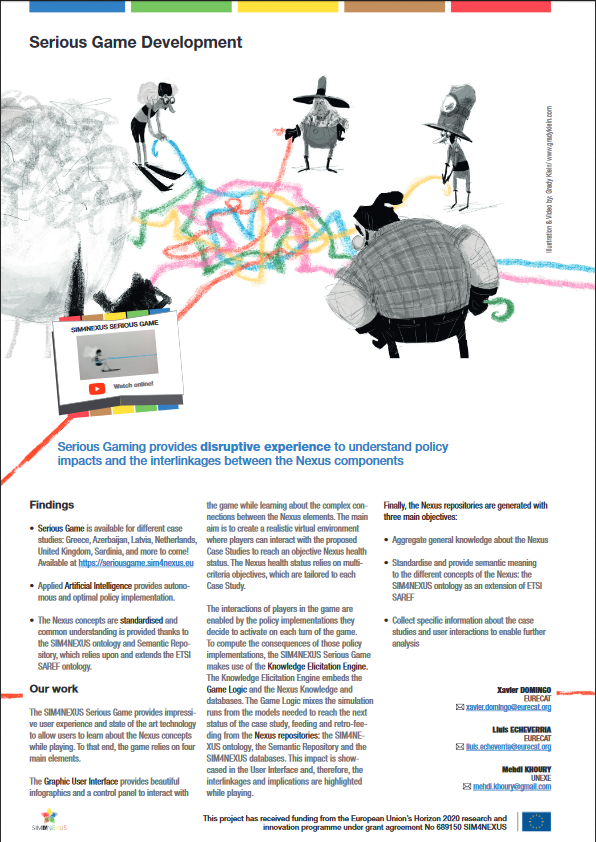Exploring the interlinkages between water, energy, food, land, and climate is now the key to achieve Sustainable Development. The third edition of the Dresden Nexus Conference 2020 (DNC2020) held on June 3-5, 2020 on “Circular Economy in a Sustainable Society” provided the platform to foster clear dialogues between Nexus thinking experts and to expand the policy-making activities related to the interlinkages between resources and productivity for an integrated management of natural resources.
With over 1200 registered participants from 100 countries, the conference hosted a special session on playing serious games organised by Stefania Munaretto and Lisa Andrews (KWR Water Research Institute) in cooperation with Floor Brouwer (WUR Wageningen Economic Research) and Serena Caucci (United Nations University UNU-FLORES). The purpose of the session was for participants to experience playing a Serious Games as a means for learning about nexus interlinkages in specific regions, and thereby reflecting on sustainable resource management issues in an interactive manner.
During the session, participants could play the SIM4NEXUS serious game. SIM4NEXUS is a European Horizon 2020 project that delivered a cloud-based integrated tool for testing and evaluating policy decisions over 30+ years, all built into a serious game (alpha version of the game online here). The game highlights the impacts of resource use and relevant policies on agriculture, water, energy, land use and climate through a model-based analysis using real data from selected case studies at regional, national and transboundary scales.
Overall, about 150 people showed interest in the special session on serious gaming, and more than 70 played the game. The programme included an introduction to serious gaming, illustration of the SIM4NEXUS serious game and its functionalities, and illustration of the Greek case study used for playing. Participants then played the game in small groups for 45 minutes with the support of a facilitator. Last part of the session was dedicated to feedback sharing on the learning experience and real-world implications.
Participant’s feedback on the serious game session was very positive. Although the short playing time, participants’ feedback demonstrated that learning occurred through the serious game, and many saw opportunities for use in their work and for communicating and training stakeholders and policy-makers on complex nexus interlinkages.
Participant Quotes
“I think this tool can be useful while preparing multi-stakeholder dialogues on water-energy-climate, so stakeholders are more aware of the effects of their decisions.”
“I found [the] nexus serious game very insightful. It helped me to observe the interdisciplinary concepts and how policies affect at regional and national regions.”
“I am interested in using the game within the post-graduate trainings in environmental management...”
Training the Serious Gamers of the Future
The next phase of the SIM4NEXUS project is to roll out training packages for universities, organisations and policy makers, either for demonstration purposes, half or full day trainings, as well as training for facilitators. With the serious game trainings, beginner groups of stakeholders or scholars could improve their understanding of the interlinkages between the 5 sectors mentioned above, while expert audiences would engage in more complex conversations on policies effectiveness and their implementation to address cross-sectoral synergies and trade-offs. Through “serious gaming”, players experience and learn firsthand the complexities of policy-making and reflect on how these new knowledge would impact their real-world decisions.
Follow SIM4NEXUS on the project website or Twitter. Also, do not hesitate to contact Lisa or Stefania if you are interested in trainings for your organisation, students or institute. We are happy to work with you!
Find the Flyer here
The Fifth Energy and Society Conference and midterm conference of the European Sociological Association’s Research Network 12 Environment and Society will take place in Trento, Italy, from 8th to 10th September 2020.
The theme of the conference calls into question how discourses about energy transition have been put into practice. As the “world’s hunger for energy” still appears to be increasing, the transition to clean sources of energy will need to be “revolutionary”, requiring the transformation of forms of social organization (Davidson and Gross, 2018). And yet, what is actually changing?
For more information, please visit the website.
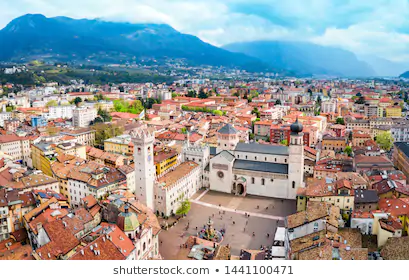
The Greek case study has just published an article at the Science of the Total Environment describing their System Dynamics Model and a Nexus hotspots and interlinkages visualisation tool, the Nexus Directional Chord Diagram. The article is entitled: “Systems thinking on the resource nexus: Modeling and visualisation tools to identify critical interlinkages for resilient and sustainable societies and institutions”. Linked to this publication, they have also published the associated data at the Mendeley data repository (https://data.mendeley.com/datasets/9x7wn24rrp/1).
Other publications related to the Greek case study can be found here and here.
SIM4NEXUS has published a result on the Horizon Results Platform.
The following list is a summary of the key messages from recommendations about the European green deal:
- maximize policy coherence
- involves the use of bioenergy
- Shifting from animal products to plant-based proteins in our diet and increasing resource efficiency in the agro-food chain
- Nature-based solutions for water issues
- Great potential for the Common Agricultural Policy (CAP)
- experimental pathway, so effective monitoring of progress towards targets, policy output and the process
- Successful nexus policy-making depends on political will, mindset, knowledge management and careful organisation of the process.
For detailed information is the policy brief also available at https://www.sim4nexus.eu/userfiles/Green_Deal_policy_brief.pdf.
JRC is organizing the Conference on Water-Energy-Food-Ecosystems (WEFE) Nexus scientific advances in the Mediterranean region (Nicosia, Cyprus, 22-23 September 2020). JRC does organise the conference in the context of the JRC WEFE Nexus work, addressing the science basis of the management of WEFE resources in the Mediterranean region.
See the link to the first announcement: https://ec.europa.eu/jrc/en/event/conference/2020-wefe-nexus-science-advances
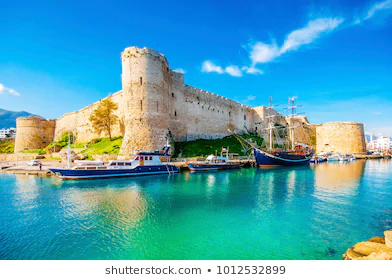
On January 1, a new project titled “A water-energy-food nexus toolkit (WEF-Tools) to support sustainable and inclusive socio-economic development in water scarce regions” and funded by DUPC2, a cooperation between IHE Delft and the Dutch Ministry of Foreign Affairs, got underway.
As part of this project, some of the knowledge, experience, and expertise of SIM4NEXUS will be transferred to an African context, with case studies in the southern African SADC region, and the northern MENA region.
SIM4NEXUS is optimistic that WEF-Tools will benefit, and demonstrate the applicability of some of the SIM4NEXUS process in an African context.
The SIM4NEXUS Team will meet at the end of March in Vienna, Austria. So far, a good amount of people has registered. The main objectives of the project meeting are to take-stock of the achievements in the project, prepare for the last quarter of SIM4NEXUS, focus on the legacy of the project and explore initiatives towards exploitation. The consortium will meet for two days (March 25 & 26), followed by a Nexus Workshop on March 27.

On the 19th, 20th and 21st of November, Strane did attend the “Local Mayors and Communities Exhibition” in Paris (https://www.salondesmaires.com/) and showcased the serious game of SIM4NEXUS. These 3 days clearly showed the increasing popularity from all type of audience for serious gaming. Feedbacks from the visitors and participants had been very encouraging.
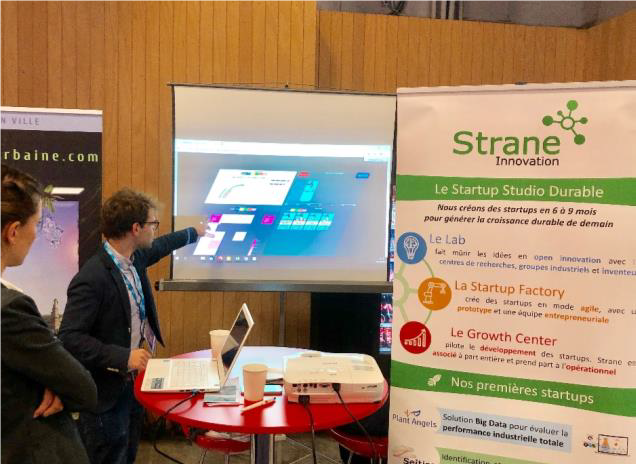
The third workshop of the Andalusian Case Study was held at the Regional Ministry of Agriculture in Seville on November 27, 2019. The workshop, led by Maria Blanco, Adrian Gonzalez-Rosell, and Imen Arfa of UPM, gathered 11 stakeholders from the water, energy, and food sectors. First, the event provided a forum for the presentation of the results derived from the SDM for the Andalusian case study. Furthermore, a round table provided a fruitful environment for discussing model results, which will form the basis for validating the model. Finally, an example of Serious Game was presented.
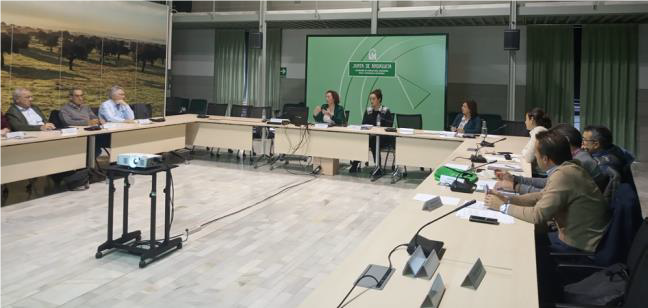
Floor Brouwer was invited to present SIM4NEXUS to the EU-Central Asia Network for Science and Technology, at a meeting held in Bishkek (capital of Kyrgysztan) on November 13-15. The Workshop ‘Water, ecosystems and energy’ covered biodiversity conservation; wetlands and aquatic ecosystems; impact from human activities; hydropower solutions, ICT and earth observation. Cross-cutting issues were addressed such as data accessibility, interoperability and reusability; skills development, training and education; science-policy feedback; socioeconomic issues; research and innovation (R&I) funding issues.
SIM4NEXUS session on the Serious Game was held on November 16 at Kaunas University of Technology, Institute of Environmental Engineering, Lithuania. The workshop was part of a module on Sustainable Management of Natural Resources at this university, and 15 students participated in this full day event on that Saturday. Several MSc students were in Kaunas because of an Erasmus Mundus Scholarship. Floor Brouwer (WUR) introduced the project, which was followed by an introduction about the Latvia case study by Ingrida Bremere and Daina Indriksone (BEF-Latvia). This task included a task for students to indicate the kind of trade-offs and synergies they have in mind for specific cases or policy areas. Further on Janez Susnik (IHE Delft) continued to speak about system dynamics modelling in SIM4NEXUS and Mehdi Khoury (University of Exeter) introduced the logics of the game, its framework and interface.
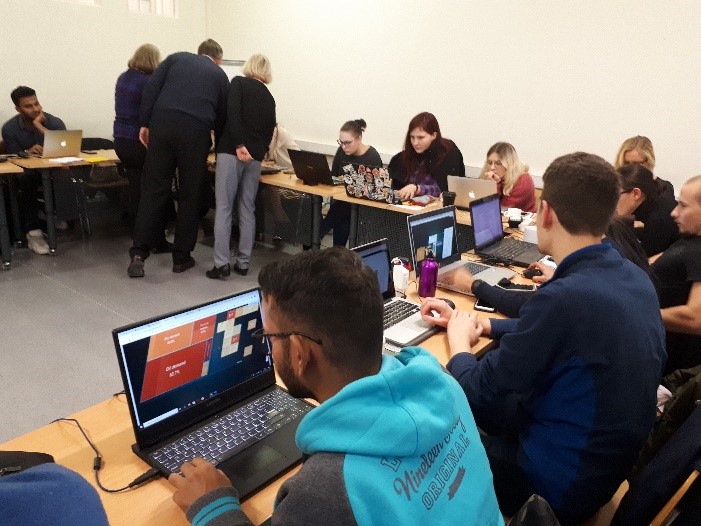
When?
15th November 2019, Kehl
Where?
Hochschule Kehl, Kinzigallee 1, 77694 Kehl
Why?
This workshop - co-organized by ACTeon and the Association de Prospective Rhénane - will be an opportunity to exchange on the limits and opportunities of existing policies, as well as on the solutions to be implemented to strengthen their coherence based on research results and testimonies from stakeholders of the Upper Rhine, the Grand Est and Baden-Württemberg regions.
Who?
Researchers, operational staff, experts and stakeholders from the civil society working in the fields of water, agriculture & food, energy, land use and the fight against climate change in the Grand Est and Baden-Württemberg regions.
More about the event can be found here (PDF), please register here.
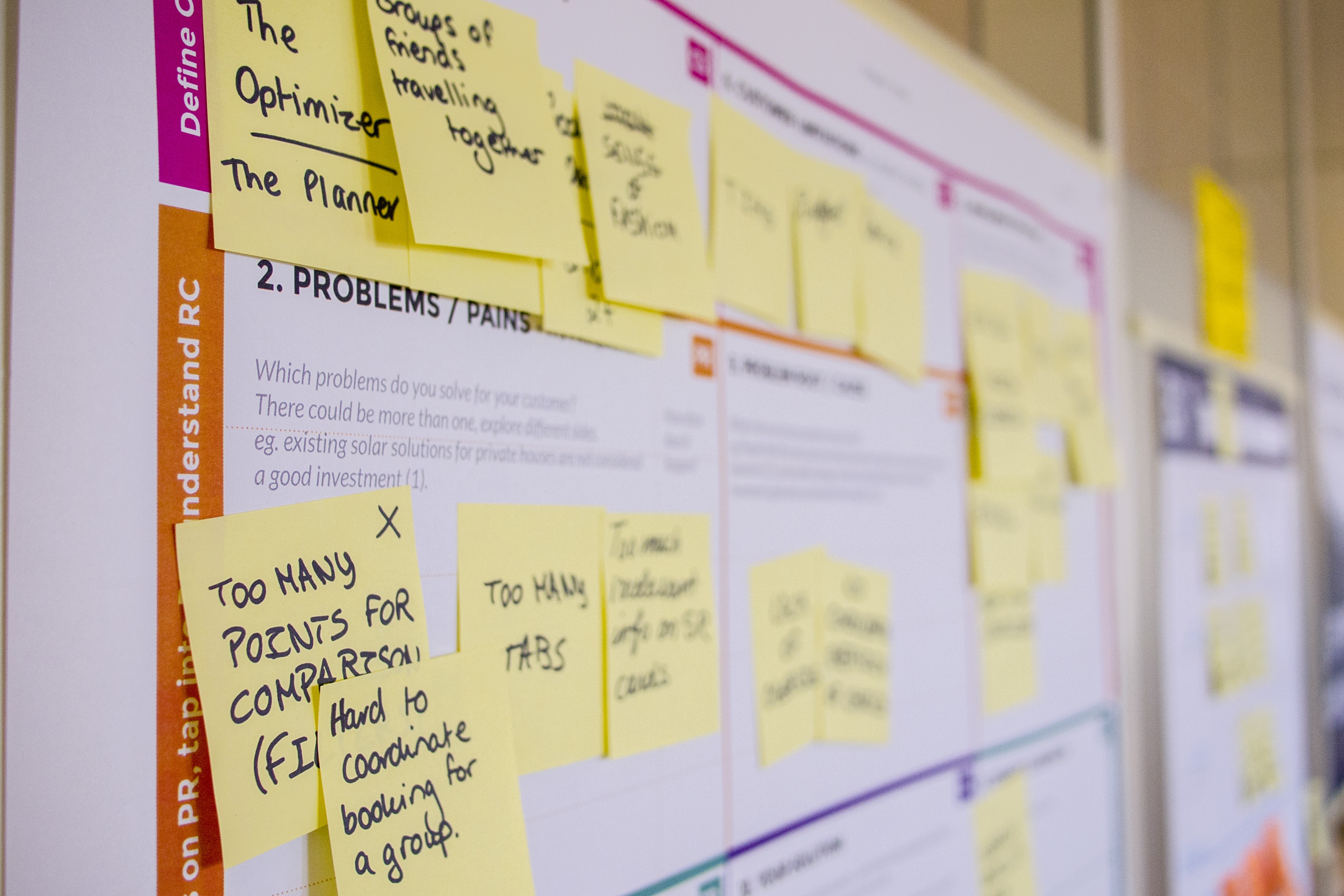
The Nexus Project Cluster  organised a second workshop ‘Methods, tools and data for policy support on the Nexus’ in Brussels on October 29. The purpose of this workshop was to showcase the achievements from research projects in defining the resource nexus, including the development of methods as well as the use of tools and available data. The projects address several policy domains including sectoral policies (e.g. energy, climate, environmental and agricultural), as well as cross-sectoral policies (e.g. resource efficiency, circular economy). The workshop is co-organized by the Executive Agency for SMEs (EASME), the H2020 projects DAFNE and SIM4NEXUS, UNU-FLORES and the Nexus Project Cluster (http://www.nexuscluster.eu/).
organised a second workshop ‘Methods, tools and data for policy support on the Nexus’ in Brussels on October 29. The purpose of this workshop was to showcase the achievements from research projects in defining the resource nexus, including the development of methods as well as the use of tools and available data. The projects address several policy domains including sectoral policies (e.g. energy, climate, environmental and agricultural), as well as cross-sectoral policies (e.g. resource efficiency, circular economy). The workshop is co-organized by the Executive Agency for SMEs (EASME), the H2020 projects DAFNE and SIM4NEXUS, UNU-FLORES and the Nexus Project Cluster (http://www.nexuscluster.eu/).
We are pleased to inform you that the Special Issue "Water-Food-Energy-Ecosystems Interlinkages in a Context of Global Change"  is now open for submission. For this Special Issue, we invite papers examining the WEFE interlinkages, from the local to the global scales, and exploring development pathways that reconcile short-term objectives with long-term sustainability.
is now open for submission. For this Special Issue, we invite papers examining the WEFE interlinkages, from the local to the global scales, and exploring development pathways that reconcile short-term objectives with long-term sustainability.
Guest Editor: Prof. Maria Blanco.
Deadline for manuscript submissions: 30 August 2020.
Link: https://www.mdpi.com/journal/water/special_issues/Water_Food_Energy_Ecosystems
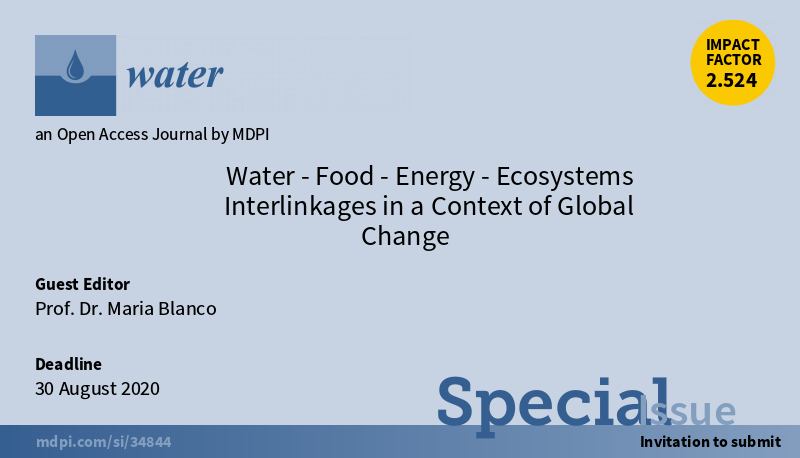
The third workshop of the Andalusian Case Study will take place at the Regional Ministry of Agriculture, in Seville, on November 27, 2019. The workshop, led by Maria Blanco (UPM) will bring together experts from the water, energy and food sectors. First, Maria Blanco will present the results of the scenario analysis performed with the System Dynamics Model. The main part of the workshop will be dedicated to discussing the results of the SDM with the stakeholders, with the aim of improving the behavior of the model and validating results. In addition, an example of a Serious Game will be presented. Find the agenda here.
We are pleased to inform you that the Special Issue "Water-Food-Energy-Ecosystems Interlinkages in a Context of Global Change" is now open for submission. For this Special Issue, we invite papers examining the WEFE interlinkages, from the local to the global scales, and exploring development pathways that reconcile short-term objectives with long-term sustainability.
Guest Editor: Prof. Maria Blanco
Deadline for manuscript submissions: 30 August 2020.
Link: https://www.mdpi.com/journal/water/special_issues/Water_Food_Energy_Ecosystems
The European Commission has now confirmed a presentation slot for SIM4NEXUS on 12 December. Maria Witmer from PBL @nlenvironment will present the project, including some pieces from the South West England case, and reflect how to develop policies to address trade-offs between different water usages.  Register for free at https://www.eip-water.eu/
Register for free at https://www.eip-water.eu/
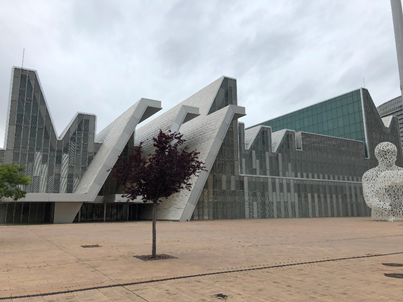
Floor Brouwer was invited to present SIM4NEXUS during a valorisation workshop, organised by the FACCE Surplus (sustainable and resilient agriculture for food and non-food systems), held in Ghent (Belgium), 11 September. FACCE-JPI is a Joint Programming Initiative on Agriculture, Food Security and Climate Change, and FACCE SURPLUS is an ERA-NET Cofund formed in the frame of FACCE-JPI. SIM4NEXUS was presented as an example, showcasing some options for valorisation of our products (e.g. Serious Games):
- Training at universities, to enable future staff to learn about sustainable and integrated management practices  (e.g. summer schools on the nexus).
(e.g. summer schools on the nexus).
- Co-operate with other consortia to strengthen the science-policy interaction. This could include offering training in ministries and the private sector, and possibly through nexus research in third countries.
- Shaping-up new projects, including a cluster of nexus research for the transfer of knowledge and to create new knowledge for future challenges.
Floor Brouwer did present SIM4NEXUS at the networking and knowledge sharing event for decarbonisation projects  , organised by EASME and DG RTD and held at Brussels on 5 September. Among others, the objective of the workshop was to exchange current experiences from research and provide a networking space for projects and policy makers to meet and exchange. The SIM4NEXUS presentation focussed on policy coherence, policy success stories and criteria for nexus policies.
, organised by EASME and DG RTD and held at Brussels on 5 September. Among others, the objective of the workshop was to exchange current experiences from research and provide a networking space for projects and policy makers to meet and exchange. The SIM4NEXUS presentation focussed on policy coherence, policy success stories and criteria for nexus policies.
Following the interesting summer school at the Free University in Amsterdam, we are currently preparing another Nexus training session  , which is going to be held at Kaunas Technical University in Lithuania (16 November). The programme is currently drafted and we expect some 20 students to participate in this full day session. Playing a game is of course on the programme and it is great we start to be able to choose from different games. The Greek game is a wonderful example to play, and the game for Latvia will be quite advanced by then, and, as it is smaller, it might be easier to test and configure. Meanwhile the game for South-west England is progressing well. It is really interesting this case study currently has added a full financial element that allows the player to run the model, drag and drop policies, but also see for water and energy financial projections. The user can change the interest rate that is at a default value when starting and see changing (i) net present value - estimate value of project at end at today's money, (ii) internal rate of return - % showing how much interest the project has generated, (iii) years to pay back = cumulative cash flow - when it gets positive. This game has the potential application to the serious game as a learning tool for policy return on investment evaluation on top of the nexus problem and might provide some interesting opportunities as well in the near future.
, which is going to be held at Kaunas Technical University in Lithuania (16 November). The programme is currently drafted and we expect some 20 students to participate in this full day session. Playing a game is of course on the programme and it is great we start to be able to choose from different games. The Greek game is a wonderful example to play, and the game for Latvia will be quite advanced by then, and, as it is smaller, it might be easier to test and configure. Meanwhile the game for South-west England is progressing well. It is really interesting this case study currently has added a full financial element that allows the player to run the model, drag and drop policies, but also see for water and energy financial projections. The user can change the interest rate that is at a default value when starting and see changing (i) net present value - estimate value of project at end at today's money, (ii) internal rate of return - % showing how much interest the project has generated, (iii) years to pay back = cumulative cash flow - when it gets positive. This game has the potential application to the serious game as a learning tool for policy return on investment evaluation on top of the nexus problem and might provide some interesting opportunities as well in the near future.
One of the participants from a Summer School in Amsterdam - Stefania Munaretto and Floor Brouwer organized a SIM4NEXUS session during this Summer School and played the SIM4NEXUS game - also testing the SIM4NEXUS serious game at Alexandria University (Egypt) on September 1st. The audience comprised of mostly international students from sub-Saharan Africa studying in Egypt and other Egyptian counterparts as well.
on September 1st. The audience comprised of mostly international students from sub-Saharan Africa studying in Egypt and other Egyptian counterparts as well.
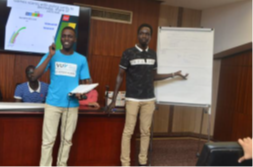
The Nexus Project Cluster announces the release of a first issue of the News bulletin. Some 21 projects have now joined the Cluster. Please have a closer look here for this exciting news and for some more.
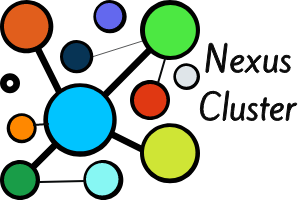
Vincent Linderhof (Wageningen Economic Research) presented the Dutch case study of SIM4NEXUS at the 2nd International Conference on Energy Research and Social Science "Energy and Society in Transition",  28-31 May 2019, Arizona State University, Tempe, USA.
28-31 May 2019, Arizona State University, Tempe, USA.
More information can be found on the website: https://www.elsevier.com/events/conferences/international-conference-on-energy-research-and-social-science
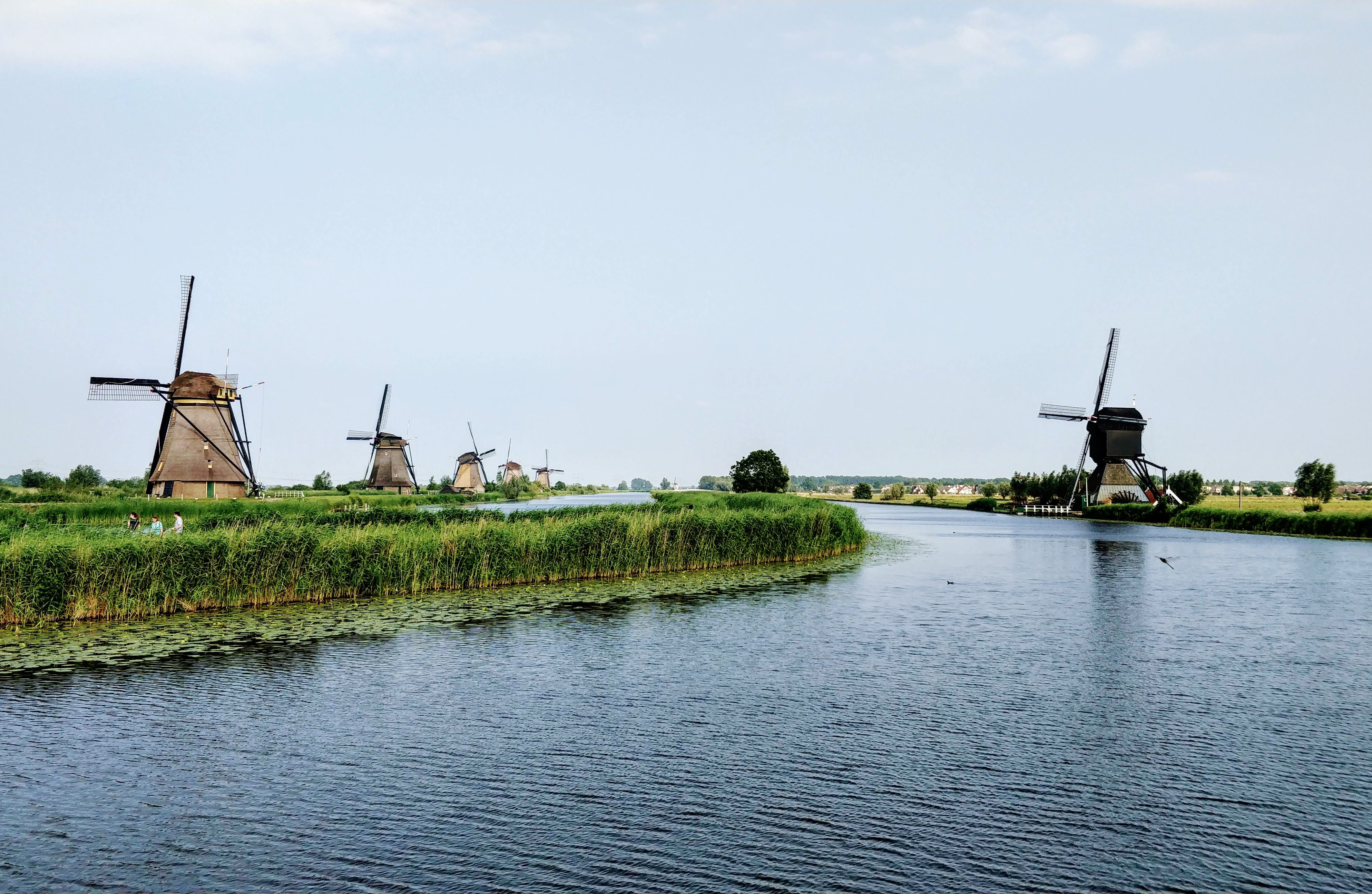
Floor Brouwer did attend ECCA2019, the European Climate Adaptation Conference, held in Lisbon, 28-30 May 2019. 
The presentation can be found here.
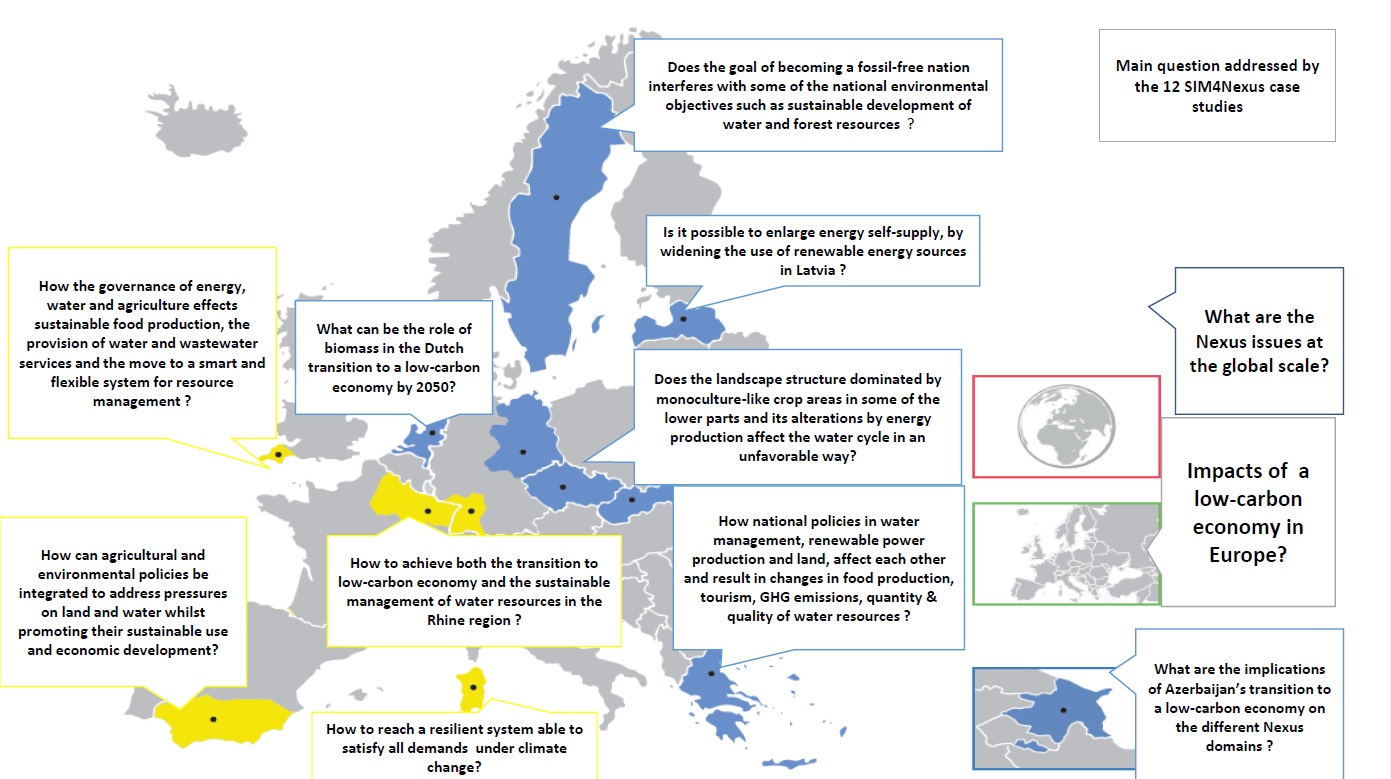
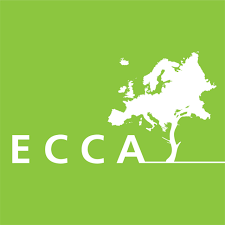
Floor Brouwer was invited to present the SIM4NEXUS project on May 23 during a project meeting in Eindhoven (the Netherlands) of the CRUNCH  (Tweet) (Climate Resilient Urban Nexus CHoices: operationalising the Food-Water- Energy Nexus) project, a three-year project that explores the Food, Water, Energy NEXUS. It is running from 2017 - 2021 and will build an Integrated Decision Support System, which is an assessment tool for cities. See also: http://www.fwe-nexus.eu.
(Tweet) (Climate Resilient Urban Nexus CHoices: operationalising the Food-Water- Energy Nexus) project, a three-year project that explores the Food, Water, Energy NEXUS. It is running from 2017 - 2021 and will build an Integrated Decision Support System, which is an assessment tool for cities. See also: http://www.fwe-nexus.eu.

The General Secretariat of the Council of the European Union published a Proposal for a Decision of the Council on establishing the specific programme implementing Horizon Europe – the Framework Programme for Research and Innovation. The Nexus Project Cluster has introduced an internal consultation on the Proposal (8 February 2019, Interinstitutional File: 2018/0225(COD)).
SIM4NEXUS is part of the Nexus Project Cluster, a group of independent research initiatives who team up for increased and more impacting communication and dissemination of the Nexus. The Nexus includes sectors like water, energy, food, land and climate, as well as important societal challenges like public health and rural-urban development. We also consider alignment with circular economy projects provided that they are linked to the concept of the Nexus. The Cluster started in 2018 and initially run until 2020. See also: https://www.nexuscluster.eu/
Given the relevance of Horizon Europe, we considered it useful to collect and make a number of Nexus-relevant comments on the Proposal for Horizon Europe. The Comments have been brought together by the Nexus Project Cluster, with specific contributions from the following participating projects/organisations in the Cluster: UNU-FLORES, MAGIC, SIM4NEXUS and CLISWELN.
For the whole paper please click here.

At the today’s policy workshop in Brussels, we have presented in depth the findings so far on the global and European case studies, and have provided an overview on the policy and regulatory gaps identified in another 10 case studies across Europe. A key message is the need for better legal practice and definitions to support implementation, and a stronger link between climate policy and SDGs. In practical terms, the project has had already real-life impact via the set-up of the new Sardinian Regional Strategy for Adaptation to Climate Change, and more integrated water-energy management by South West Water, a UK water utility.
“The Nexus is a concept that emerged a decade ago, and deals with understanding the linkages between different sectors – such as energy, water, food, land use, health -, physical and economic elements. Our Horizon 2020 project SIM4NEXUS started in 2016 and aims to identify successful pathways to a resource-efficient Europe, and – based on our 12 case studies - we believe that policies and management will be most successful if they balance and count on all natural resources in integrated decision-making and sustainable way. Our project partners model future scenarios and how decisions influence resource use, with quantitative data. Our partners University of Exeter and South West Water – a water supplier in the UK – have assessed jointly which investments are needed to save both water and energy resources, and their work has just been listed as “good practice” by the UK’s water regulator OFWAT. That’s a big step forward to moving from research to implementation and recognition.” Floor Brouwer, Wageningen Economic Research
Download the powerpoint here.
“At a strategic level, the EU policy objectives on water, energy, land, food and climate are often coherent. The problem basically comes with implementation. Successful policies do recognise that there are conflicting interests, and manage them transparently – by prevention and mitigation if possible, otherwise by compensation. Of course, ‘breaking the silos’ is more complicated than today’s policy making, takes more time and meetings. But let’s be honest – the world is complex too, and without modelling and interaction, we won’t take the right policy decisions for the future of Europe”. Maria Witmer, PBL Netherlands Environmental Agency
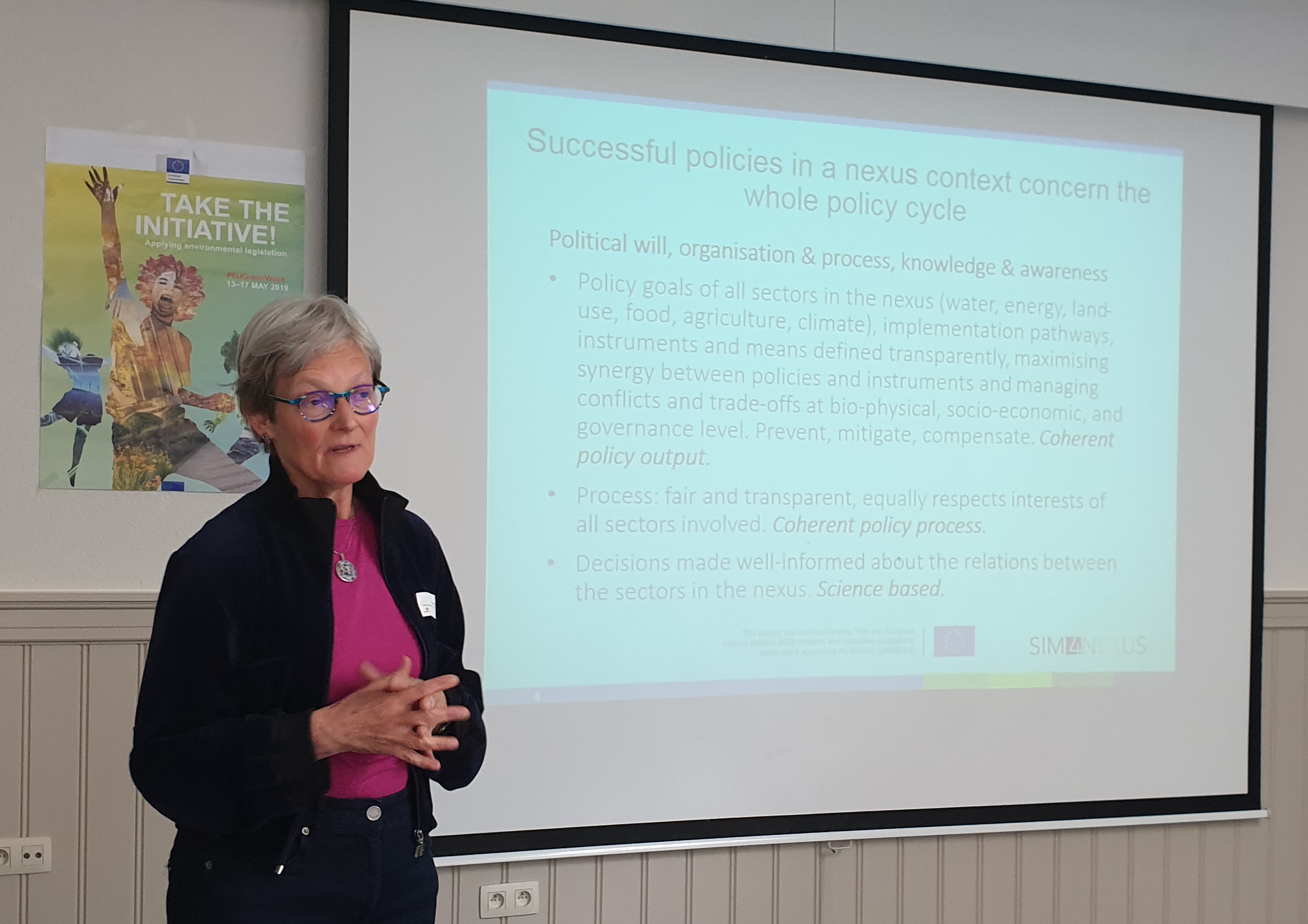
“It’s time for practice! We have much regulation, which we don’t implement to its best. There is a big challenge to see the common interests and break the silos.” Trond Selnes, Wageningen Economic Research
Download the powerpoint here.
“We have modelled how policies to address the individual Sustainable Development Goals can have synergetic or trade-off effects with other related SDGs. For example, policies to reduce CO2 emissions by shifting from traditional power plants to renewables can not only mitigate climate change but also help saving water (SGD6), though they often compromise food security. Similarly, policies for the reduction of meat consumption have also positive effects on climate change and biodiversity. We have to change our today’s business-as-usual policies if we aim to achieve any of the SDGs, and local and regional policy makers shall make decisions within the complexities of the different SDGs.” Jonathan Doelman, PBL Netherlands Environmental Agency
Download the powerpoint here.
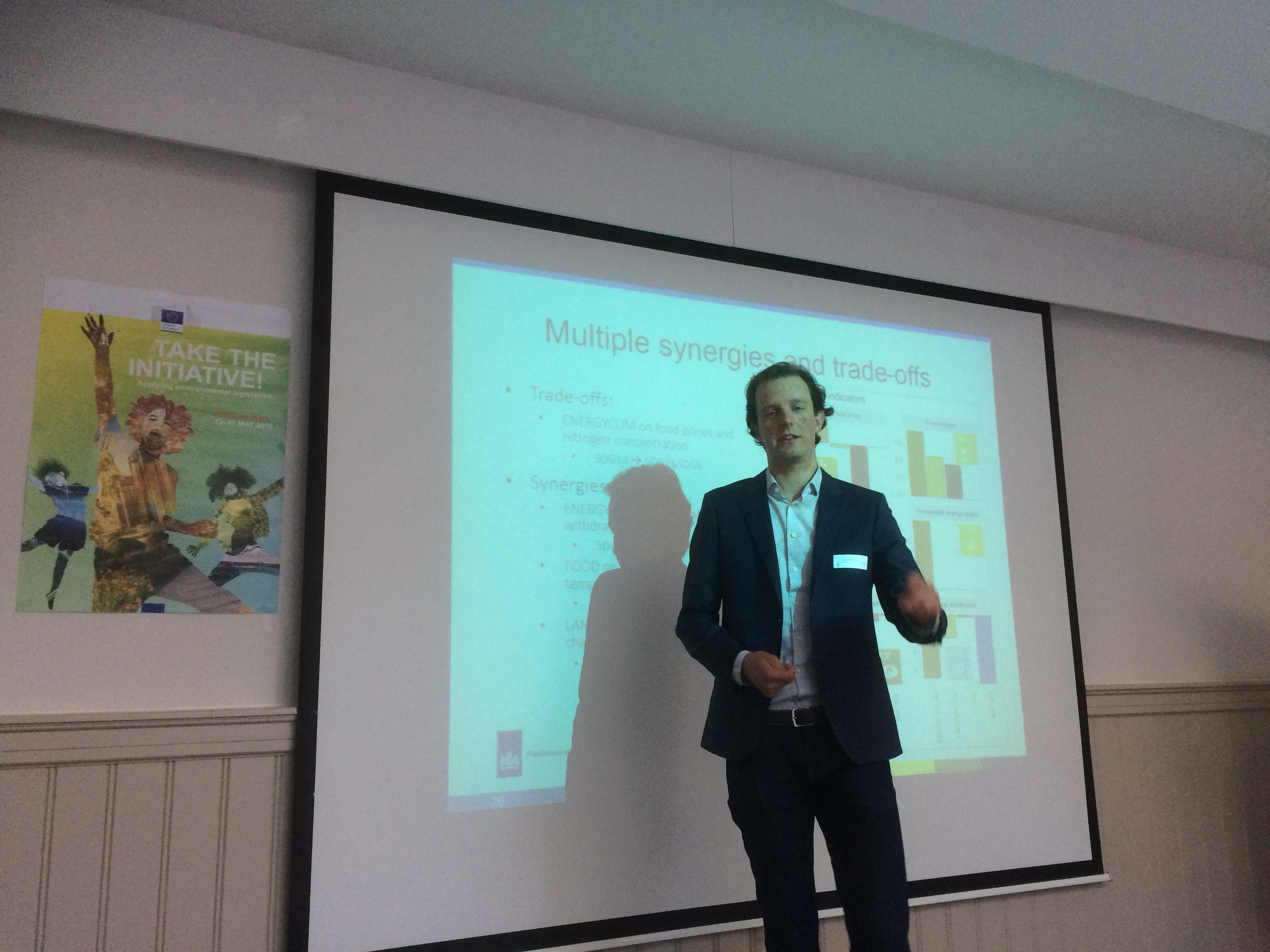
“Results from the 2 degrees scenario suggest that Europe is better situated than the rest of the world to make the transition to a low carbon economy. However, it is also important to realize that much of our CO2 footprint is outsourced to other global regions; also in practice, reducing emissions in Europe is more difficult as low-hanging fruits for increasing efficiency have already been exploited in the past. Additional action might be needed in making this transition e.g. on shifting from meat to plant-based diets, improving resource efficiency in the agricultural and energy systems. Further it is important to consider the impact on the Nexus if Europe is a ‘first mover’ and implements mitigation policies before the rest of the world” Jason Levin-Koopman, Wageningen Economic Research
Download the powerpoint here.
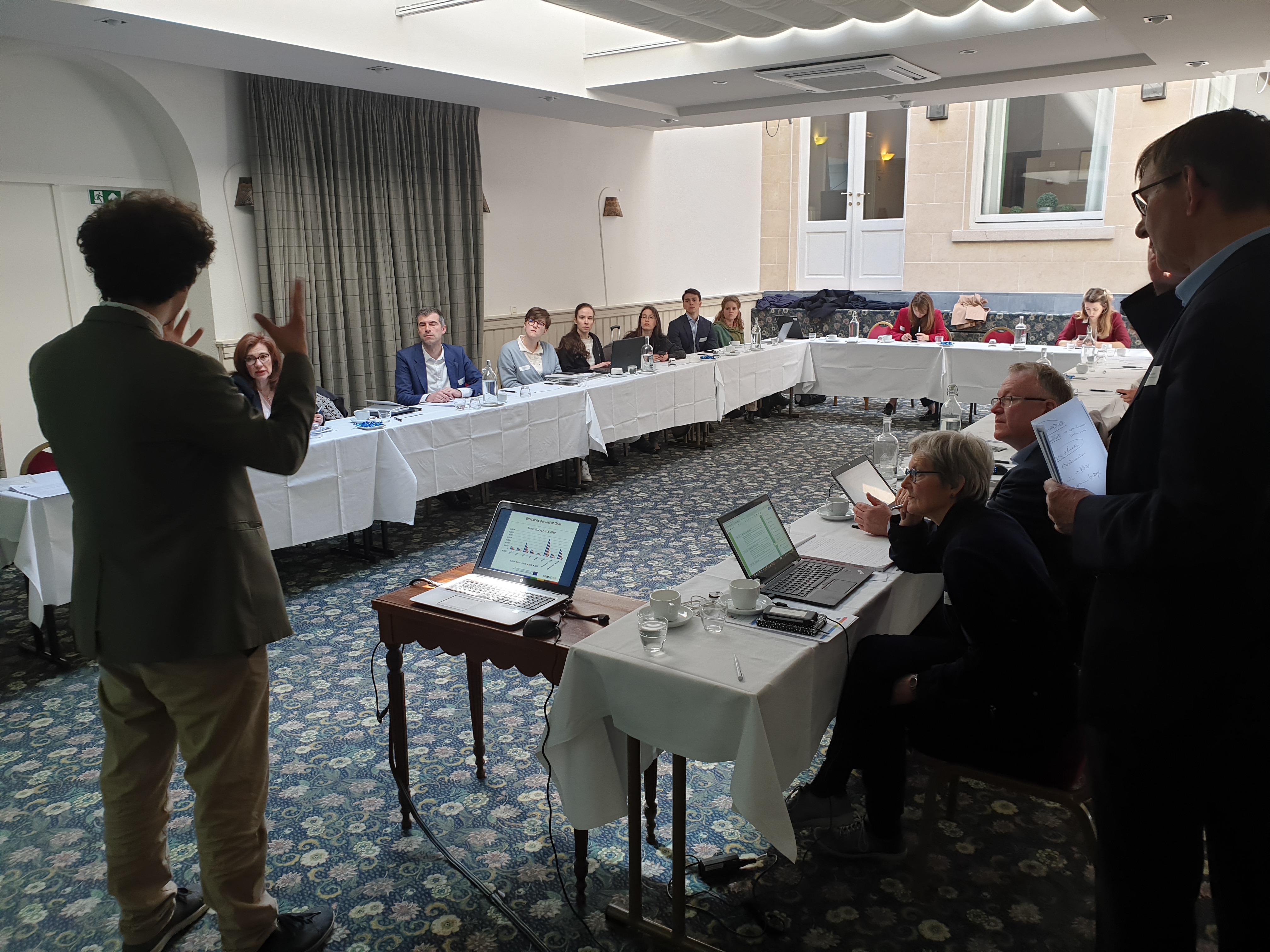
SIM4NEXUS: integrating policy for water, land, energy, food and climate
- Get informed about nexus synergies and trade-offs between water, land, energy, food and climate at global and European scales.
- Learn about policy coherence and success factors in a nexus context.
- Share experiences with intersectoral approaches and get inspired for your daily work.
The global and European cases of SIM4NEXUS will be presented and discussed, as well as the policy analysis.
Global case: How may multiple SDGs for water, land, energy, food and climate be achieved? What synergy and conflicts between sectors may be encountered?
European case: How will achieving the climate goals affect energy, water, land, agriculture, food?
Policy coherence: How do we successfully develop and implement policy in a nexus context?
We will present and discuss different scenarios to achieve SDG targets for water, land, energy, food and climate at global scale. Synergies and trade-offs between these sectors become manifest when aiming for the targets. The challenges to achieve multiple SDGs will be discussed.
Participants will learn about the complex interactions between the energy transition to reach the climate goals in 2050, the management of land and water, and the development of the agro-food chain. Policy scenarios and interventions, synergies and trade-offs will be discussed.
Success in nexus policy-making has many dimensions and is multi scale. It concerns the whole policy cycle, including legislation and implementation. Policy coherence or incoherence at EU or national levels may stimulate or prohibit implementation at regional and local levels. Regional and local practices are important for a successfull integration of policies that aim at different sectors.
16 May 2019 9:00 – 13:00
Hotel Leopold
Rue du Luxembourg 35, Brussels
Introduction SIM4NEXUS and Chair: Floor Brouwer, Wageningen Economic Research
Global case: Jonathan Doelman, PBL Netherlands Environmental Assessment Agency
European case: Jason Levin-Koopman, Wageningen Economic Research
Policy analysis: Trond Selnes, Wageningen Economic Research and Maria Witmer, PBL Netherlands Environmental Assessment Agency
Programme can be downloaded here.
Register for the workshop here.
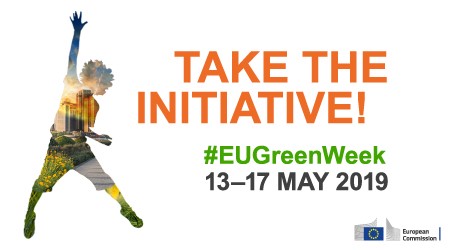
In 2018, the Sardinian Regional Government took action by developing and adopting the Regional Strategy for Adaptation to Climate Change (SRACC)  (Tweet) in collaboration with the University of Sassari and the Euro-Mediterranean Center on Climate Change, which defines the methodological path as well as the strategic priorities for regional planning and local authorities.
(Tweet) in collaboration with the University of Sassari and the Euro-Mediterranean Center on Climate Change, which defines the methodological path as well as the strategic priorities for regional planning and local authorities.
The Strategy activated an inclusive governance process based on a multi-sectoral approach and is a key factor in shaping the adaptation process. The development of the SRACC generated bidirectional synergies with the SIM4NEXUS Sardinian case study  (Tweet) that provided models and processed data for in-depth analyses at municipality level for some sectors strongly influenced by climate change. Indeed, the nexus approach applied in Sardinia allowed an analysis of the complex system among the water, land, food and climate sectors. The analyses of vulnerability and risk were carried out by Antonio Trabucco, Simone Mereu and Sara Masia through their involvement in the SIM4NEXUS project, and by the Euro-Mediterranean Center on Climate Change which also developed the climatic analysis up to 2050. The collaboration with the development of the SRACC also opened new opportunities in terms of stakeholder involvement and interaction as well as an improved knowledge of the functioning and management of relevant sectors in Sardinia.
(Tweet) that provided models and processed data for in-depth analyses at municipality level for some sectors strongly influenced by climate change. Indeed, the nexus approach applied in Sardinia allowed an analysis of the complex system among the water, land, food and climate sectors. The analyses of vulnerability and risk were carried out by Antonio Trabucco, Simone Mereu and Sara Masia through their involvement in the SIM4NEXUS project, and by the Euro-Mediterranean Center on Climate Change which also developed the climatic analysis up to 2050. The collaboration with the development of the SRACC also opened new opportunities in terms of stakeholder involvement and interaction as well as an improved knowledge of the functioning and management of relevant sectors in Sardinia.
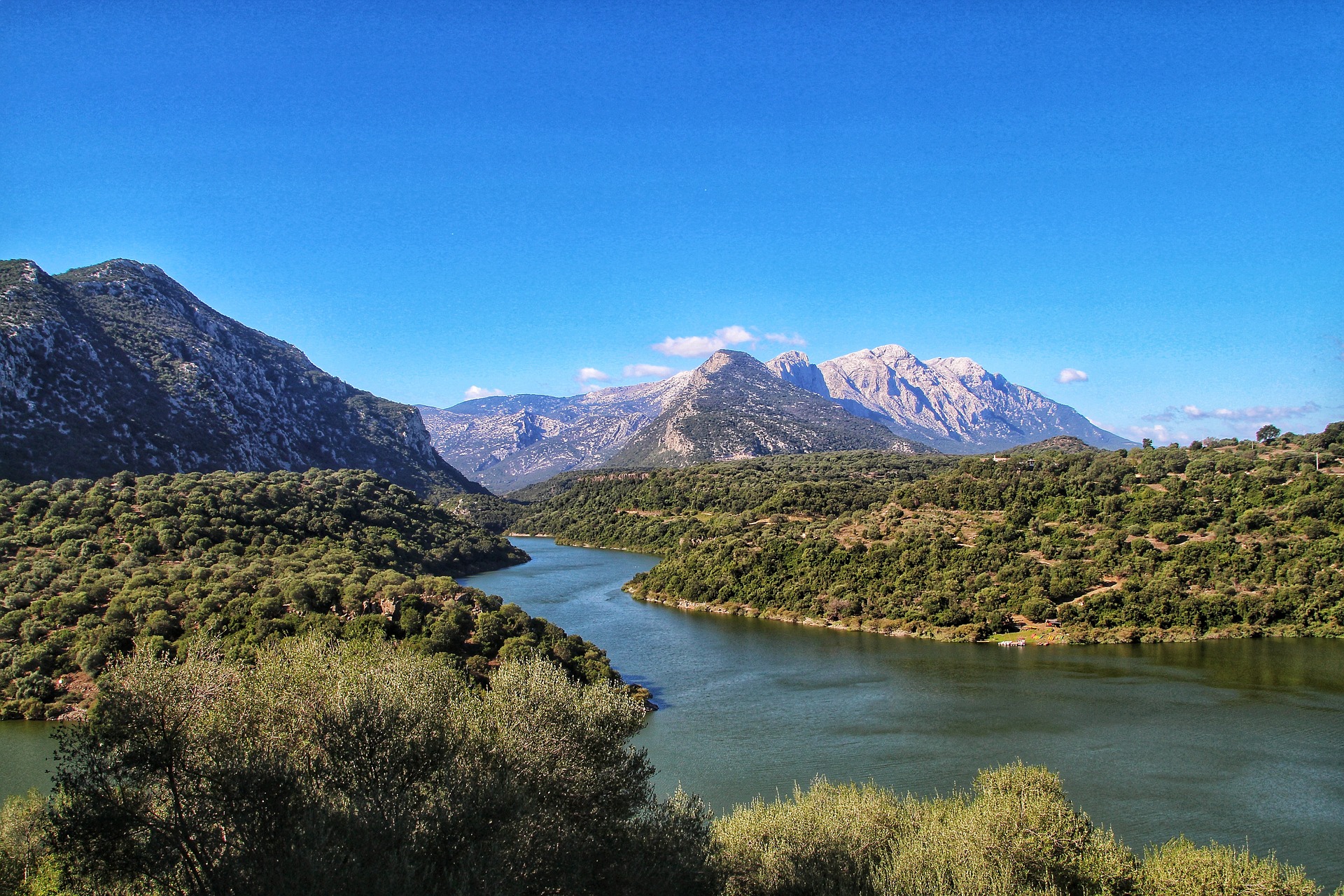
When? 26 April 2019 10:15-12:45 CET
Where? Paris, ‘MyCoWork’, 5 Rue du Cloître Saint-Merri, close to “Chatelet – Les Halles”
Why? SIM4NEXUS is developing a Serious Game. The Serious Game is a computer game that will aid learning about the Nexus by helping users to understand and explore the interactions between water, energy, land and food resources management (so called “nexus components”), divide the problem into manageable interventions, and allows participant to learn by doing. The Nexus Business Group workshop aims to test the game and fill in the gap between potential users needs and the draft products and services so far produced by SIM4NEXUS.
Who? Anyone interested in using a serious game on water, energy, land and food resources management, in business, university or training.
You can find the agenda here.
Our partner South West Water’s Business Plan for the period 2020-25 has been initially assessed by OFWAT, the economic regulator of the water sector in England and Wales) in its “Initial assessment of business plans” document, and classified as “fast track”. In this document, OFWAT has cited SIM4NEXUS collaboration as example of good practice for resilience, integration, interdependencies and efficiency. (Tweet)
(Tweet)
This is quite an achievement for SIM4NEXUS and something SWW is very pleased to be associated with. More details on page 62.
SIM4NEXUS policy coherence assessment supports the proposal by EU_AGRI for the CAP 2021 – 2027 to reinforce cross-compliance  (Tweet). According to this proposal, CAP public funding should be more explicitly based on compliance with environmental objectives and delivering environmental public services. There is great technical potential for the agricultural sector to contribute to the improvement of water, land and landscape management, climate change mitigation and adaptation, and an efficient use of energy and resources, but putting this into practice is proving rather difficult. The CAP and policies on water, land, energy and climate could explicitly address mutual conflicts and opportunities for synergy, and develop a regulation on how to cope with them.
(Tweet). According to this proposal, CAP public funding should be more explicitly based on compliance with environmental objectives and delivering environmental public services. There is great technical potential for the agricultural sector to contribute to the improvement of water, land and landscape management, climate change mitigation and adaptation, and an efficient use of energy and resources, but putting this into practice is proving rather difficult. The CAP and policies on water, land, energy and climate could explicitly address mutual conflicts and opportunities for synergy, and develop a regulation on how to cope with them.
Policy coherence issues related to the nexus between water, land, energy, food and climate, as observed at an EU level, were also encountered on national and regional levels. Those most relevant for the CAP are:
- CAP investments in restoration of soils, prevention of soil erosion and reforestation are nature-based solutions to combat flooding and drought and show synergies with climate change mitigation and adaptation
 (Tweet) says @SIM4NEXUS. These synergies were confirmed by the cases in the Czech Republic, Slovakia, Germany, Andalusia, and South-West England.
(Tweet) says @SIM4NEXUS. These synergies were confirmed by the cases in the Czech Republic, Slovakia, Germany, Andalusia, and South-West England. - The positive effects of increasing energy and water efficiency, resource efficiency in the agro‐food chain, and reduction in the use of water and energy. These are fundamental measures that serve all sectors within the nexus and are synergistic with climate change mitigation and adaptation. These synergies were mentioned by the cases Greece, Latvia, Andalusia and Sardinia.
- Internal conflicts that may exist in agriculture policy between economic and environmental objectives with trade‐offs on water, land, energy and climate objectives. These conflicts were confirmed by the cases in Latvia, Andalusia, South‐West England, Czech Republic, Slovakia and Germany. On the other hand, agriculture has the potential to deliver environmental public services and to positively interact with water, land, nature, energy and climate.
- Competition for scarce water and land is fostered by CAP in NL, CZ, DE and FR
 (Tweet) shows SIM4NEXUS
(Tweet) shows SIM4NEXUS - First-generation biofuel crops have negative impacts on landscape, hydrology and local climate, as shown in CZ, SK and DE
 (Tweet) SIM4NEXUS findings
(Tweet) SIM4NEXUS findings
At the European Union level, there is a strong policy coherence between the cross-compliance and environmental objectives of the current Common Agricultural Policy (CAP) and policies on water, land, energy and climate. Also, rural development policy and stimulation of competitiveness of the agricultural sector by the CAP may be in line with these objectives, if rural environmental objectives are met and competitiveness is reached by resource efficiency. However, coherence in implementation on national, regional and local levels has been weaker, leading to conflicts in policy implementation both vertically between administrative levels and horizontally between sectors.
The whole paper can be found here.
SIM4NEXUS contributed during the recent climate negotiations taking place in Katowice (Poland).  (Tweet)
(Tweet)
Following to the successful participation during COP23 (Bonn, November 2017), the team again applied for a side-event in the EU Pavilion. The first session (in EU Pavilion) was held on Thursday December 13, 18-20 pm during a side-event titled ‘Climate action, land and the Nexus’. Floor Brouwer (WUR-LEI) presented ‘The Nexus approach and policy coherence in climate action’, and Robert Oakes (UNU) presented ‘Sustainable Development Goals and global environmental change’. Some 30 people participated and gave compliments regarding the stakeholder interaction SIM4NXUS launched at the start of the project. The second session (in UNFCCC Pavilion) was held on Friday, December 14, 11.30 – 13 pm during a side event ‘The Paris Agreement and the Nexus of water, energy and food; Policy coherence and serious games’. Floor Brouwer presented ‘A Nexus approach for climate action’, Chrysi Laspidou (UTH) presented ‘Nexus policies through serious games’ and Rob Oakes (again) presented ‘Sustainable Development Goals and global environmental change’. Some 40 participants were very much interested to learn about the process of implementing cases, and the participants expressed great interest in the game part of the Nexus. There were questions regarding the information requirements to develop a game. Also, there was interest in the efforts needed for sound science-based policy support, and whether this is a lengthy process. This session was definitely enriched from the presentation by Vaibhav Chaturvedi, Research Fellow, Council on Energy, Environment and Water (CEEW) (Delhi, India) and the title of his presentation was India’s Energy-Water Nexus.
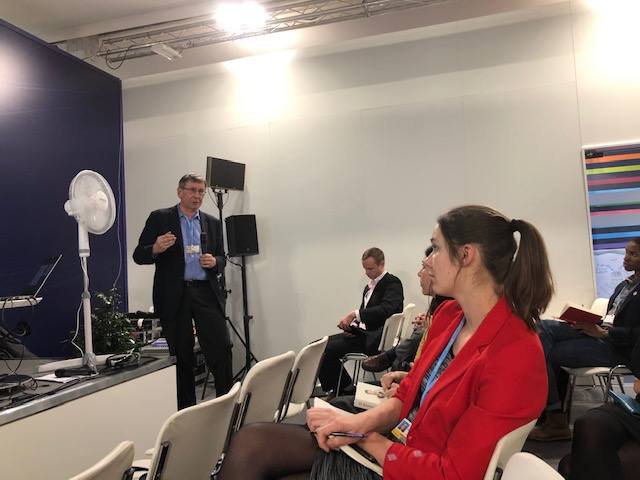
The WssTP Nexus Working Group met on 29 November during Water Knowledge Europe 2018. Floor Brouwer (WUR-LEI) and Chrysi Laspidou (UTH) did participate and discussed to prepare a policy brief, sharing the Nexus concept. Focus is on water as a key resource for the food industry (including primary production) and energy sectors (both renewable and non-renewable). Energy and food also are very different sectors (e.g. size, market orientation, public support), and very dependent for their activities on the availability of sufficient water of good quality.
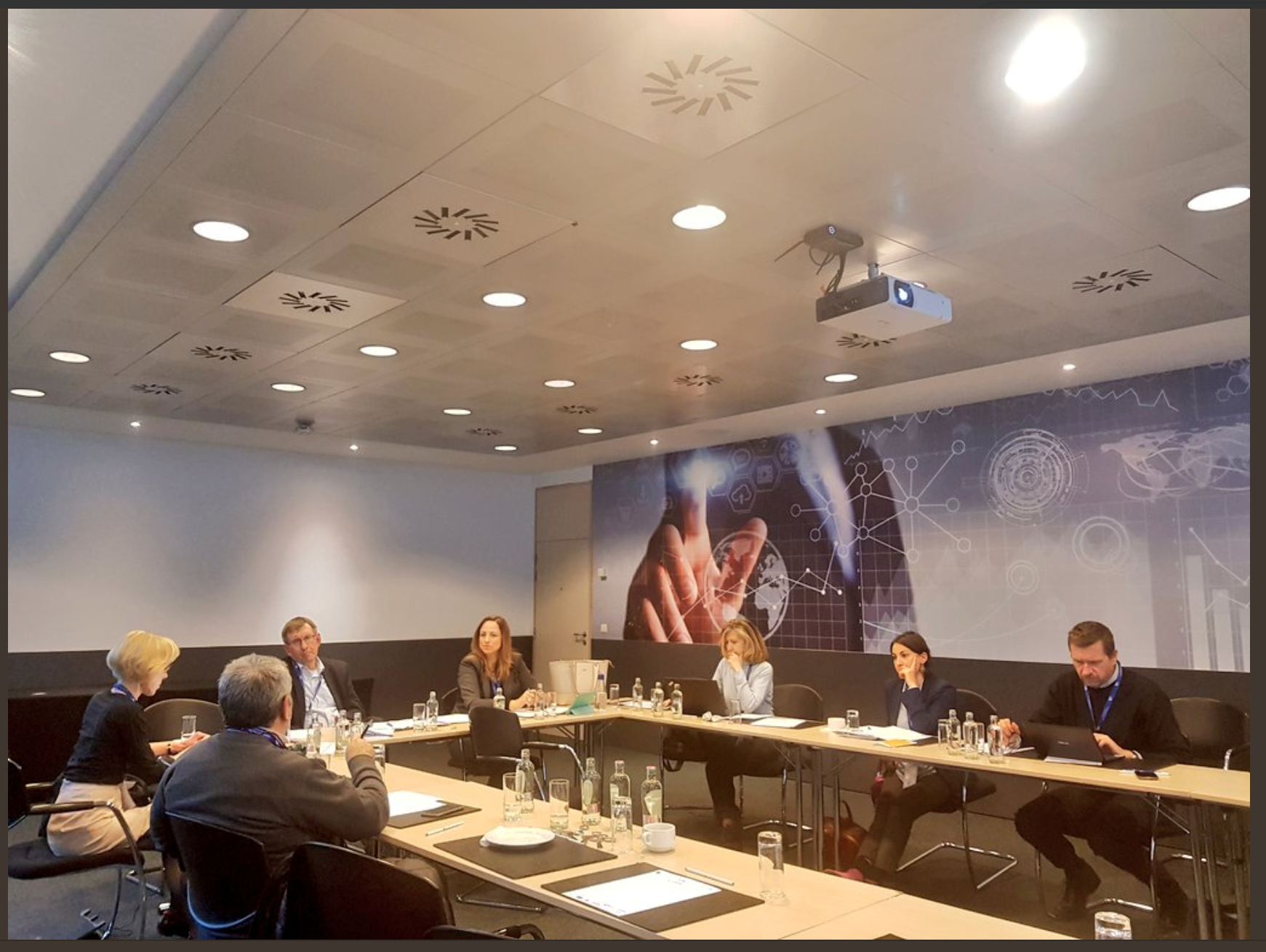
Malgorzata Blicharska and Claudia Teutschbein (UU) have now published their paper on environmental conservation challenges in a multi-sector system. You find the English version at: https://bit.ly/2BCpxYS
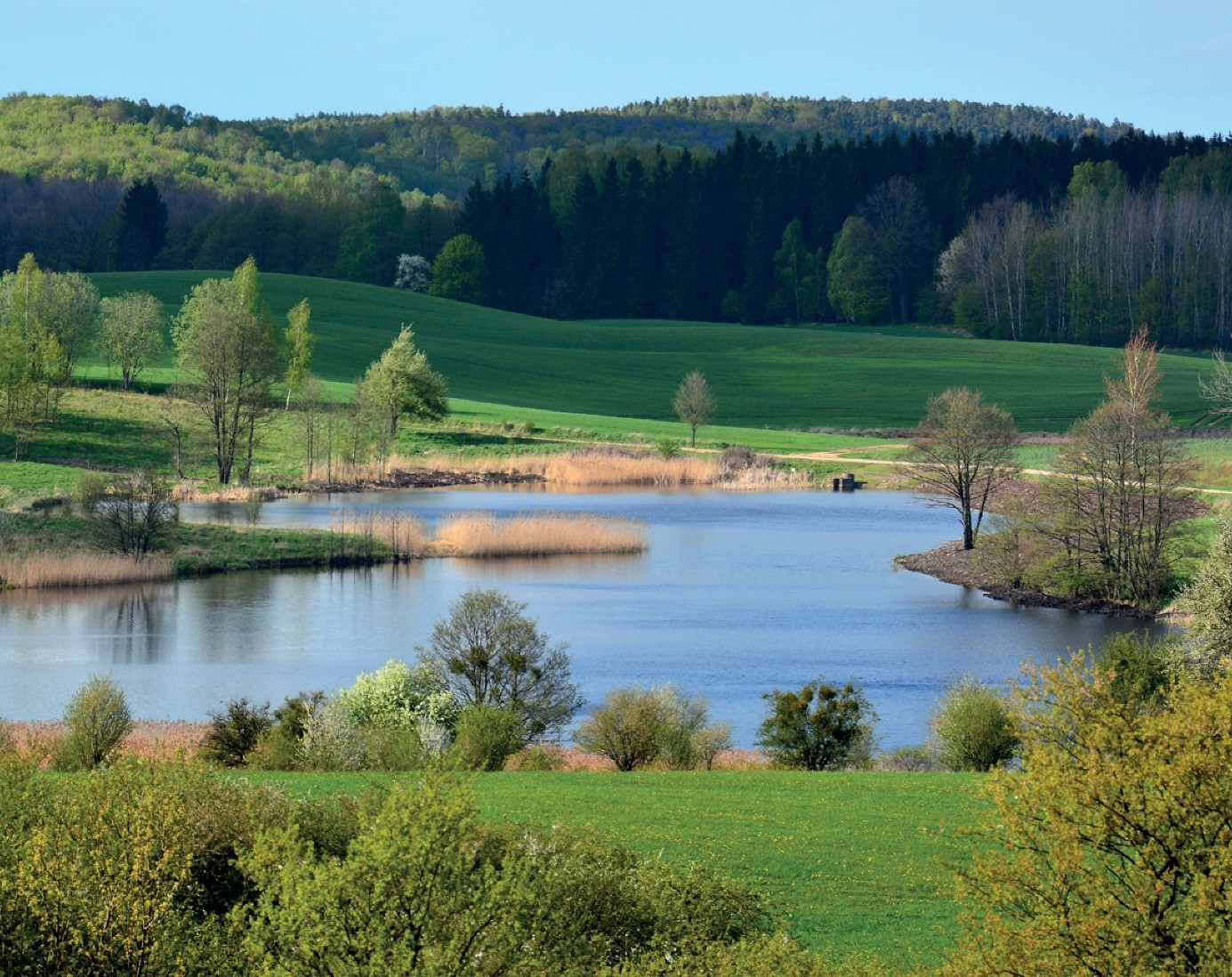
The paper "The Nexus Concept Integrating Energy and Resource Efficiency for Policy Assessments: A Comparative Approach from Three Cases" has been published in Sustainability as part of the Special Issue Sustainable Energy Systems: From Primary to End-Use and is available online: Abstract: http://www.mdpi.com/2071-1050/10/12/4860. PDF Version: http://www.mdpi.com/2071-1050/10/12/4860/pdf. The paper is co-authored by Floor Brouwer, Lydia Vamvakeridou-Lyroudia, Eva Alexandri, Ingrida Bremere, Matthew Griffey and Vincent Linderhof. Special Issue: http://www.mdpi.com/journal/sustainability/special_issues/Sustainable_Energy_Systems
On the 27th of November, the Resource Nexus Policy & Cluster Workshop kicked off with 60 participants present at EASME premises. The workshop started with a short presentation of the three Horizon2020 projects organising the event, SIM4NEXUS, MAGIC and DAFNE. The first session was introduced by the coordinator of MAGIC, Mario Giampietro, who offered a critical appraisal of nexus narratives through a methodology called quantitative storytelling. This was followed by an introduction on the ‘Governance of the nexus’ by Ângela Guimarães Pereira (JRC), and a panel discussion. For more information, please download the summary here.
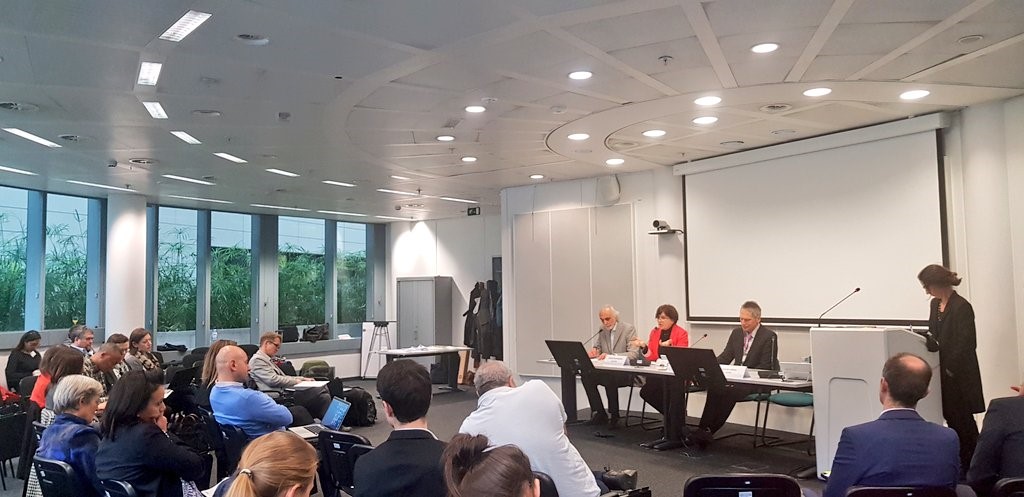
The second workshop of the Andalusian Case Study was held at the Regional Ministry of Agriculture in Seville on November 21st. The workshop, led by Maria Blanco and Pilar Martinez of UPM, gathered 12 stakeholders from the water, energy, and food sectors. First, the event provided a forum for the presentation of the preliminary results derived from the thematic models, CAPRI and E3ME, applied to the case study. Furthermore, a round table provided a fruitful environment for identifying the main policy objectives to address the Nexus, which will form the basis of the scenario analysis with the System Dynamics Model.
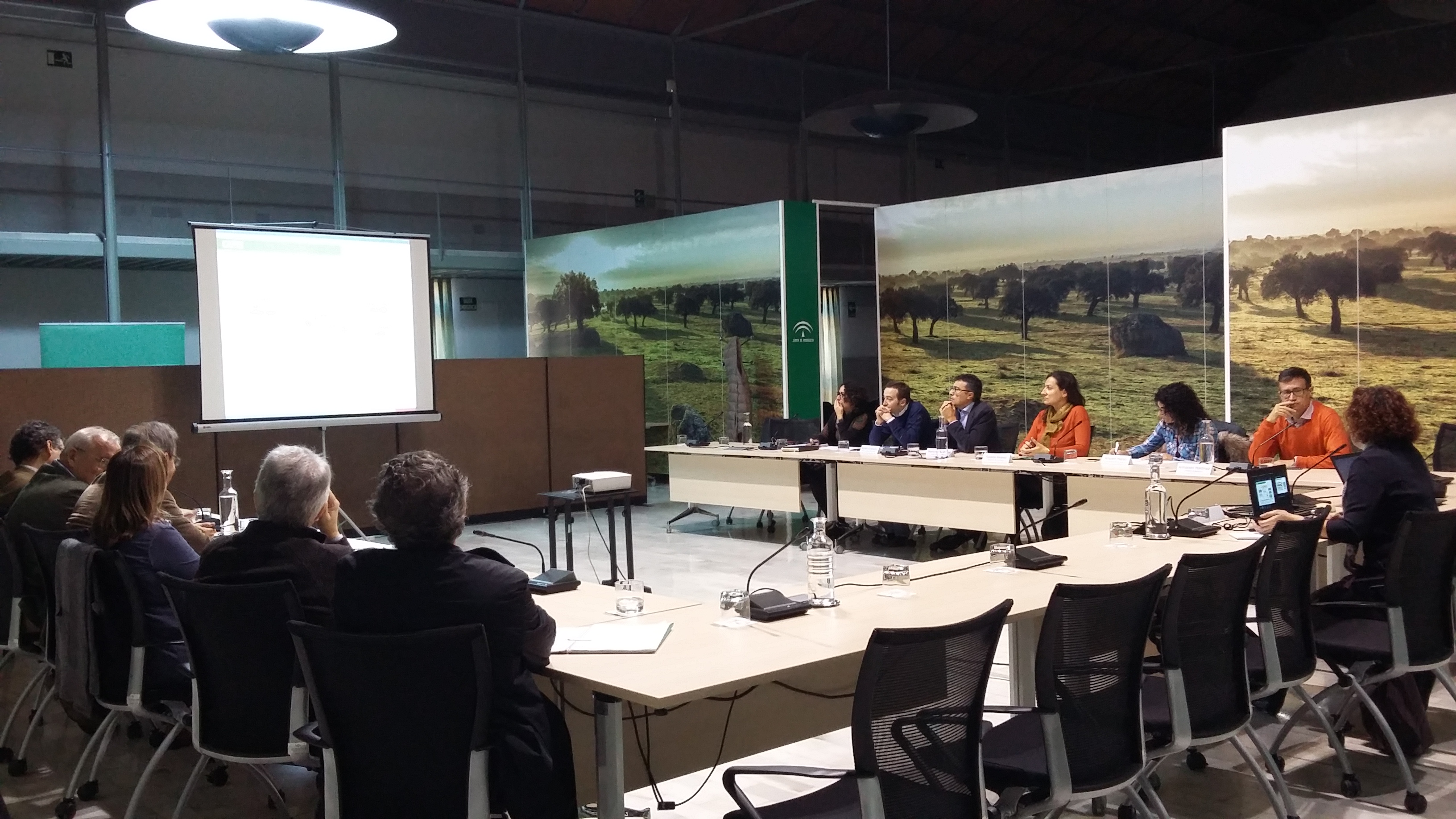
On Friday 16 November 2018, Prof. Maria P. Papadopoulou (Deputy Dean, School of Rural & Surveying Engineering National Technical University of Athens) gave a talk at the Seminar Series organized by the Center for Water Systems at University of Exeter, to an audience of approx. 25 Ph.D. students, Post-docs and researchers and
The main discussion was on topics as:
a) uncertainty issues related to the outcomes of the thematics and the robustness of the SIM4NEXUS Serious Game
b) the transferability of the Serious Game to other geographical areas, like e.g. Iran
c) the source of data used in the System Dynamics Model of the Greek case study; e.g. how confident are we to use data from large databases like Eurostat etc?
d) the monthly time step used in the Greek case study, e.g. is this temporal discretization adequate enough to catch the impacts of extreme weather events?
Are you interested? Please see the video at https://uoevideo.exeter.ac.uk/Play/3594, and feel invited to approach Maria at mpapadop[at]mail.ntua.gr for follow-up
Mehdi Khoury: “SIM4NEXUS is a challenge on a different scale: make a Serious Game based on a monster model with more than 9000 variables! Make it understandable, make it visual, and most importantly, make it playable and interesting!”
Why? Nowadays, freshwater resources are under stress. The European Commission funds research to ensure availability of sufficient fresh water for all current and future European citizens. Information technology is an important part of the solution for our water scarcity problem. Our team is interested in cross-sector data exchange, and exchanging on the development of ICT incl. serious games as support for cross-sector decision-making, and explore ways for further implementation and business exploitation of such tools.
What? SIM4NEXUS will demonstrate a serious game for the water-energy-food-land-climate nexus, which is under development; presentation will take place at the ICT4Water booth and in two side events. SIM4NEXUS is an EU ICT4WATER Digital Water Action Plan (pdf) forerunner project for Data Exchange and especially relevant for setting Action DS.2 “cross sector data exchange for the Nexus”.
Where and when? Vienna (Austria), at the Austria Centre Vienna, Booth location: Area-Transforming Industry & Economy (Hall X4), Stand number: T04, on December 4 from 9:30-18:30, December 5 from 10:30-11:30/12:30-14:30/15:30-16:30/17:30-18:30 and on December 6 from 9:30-10:30.
Furthermore we will take part in the following two side events: December 5, 16:30-17:15: “Smart water services: The Digital Water Action Plan” (Room M1) and December 6, 10:00-10:45: “EU funded projects towards a Smart Water Task Force” (Room L4)
Who? You can meet and discuss at the stand with Mehdi Khoury, Serious Game Developer at the University of Exeter, Lydia Vamvakeridou-Lyroudia (computer modelling expert at the University of Exeter and in the leading group of the ICT4WATER cluster) and Michaela Matauschek (Fresh-Thoughts Consulting GmbH)
Lydia Vamvakeridou-Lyroudia: “SIM4NEXUS is about a team work trying to capture and model the complexity of independencies between the Nexus domains water, energy, food, land and climate in 12 countries
More information about the ICT 2018 event can be found here: https://ec.europa.eu/digital-single-market/en/events/ict-2018-imagine-digital-connect-europe
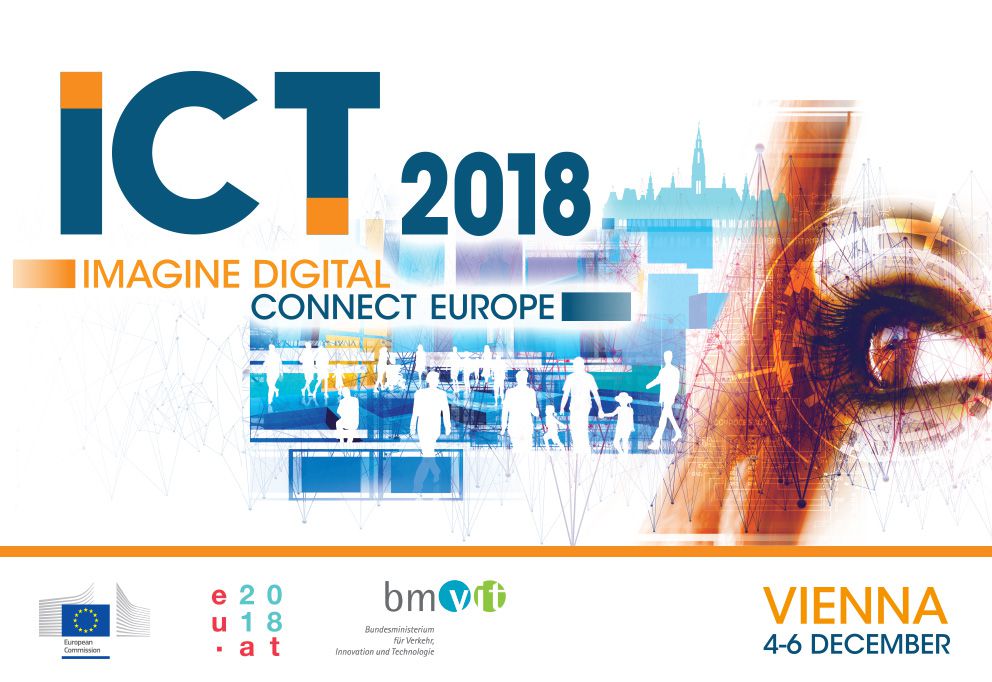
KTH has developed a background paper on the Nexus and its implications for agricultural research. This background paper was well received during the CGIAR’s Independent Science and Partnership Council, which was held in October in Stellenbosch, South Africa. Floor Brouwer (WURLEI) and Maria Blanco (UPM) have commented a draft during the summer. The following is the link to the final version of the paper and annex, hosted on the Science Forum's website. See also https://www.scienceforum2018.org/. The report is accessible: https://bit.ly/2RbT5mm
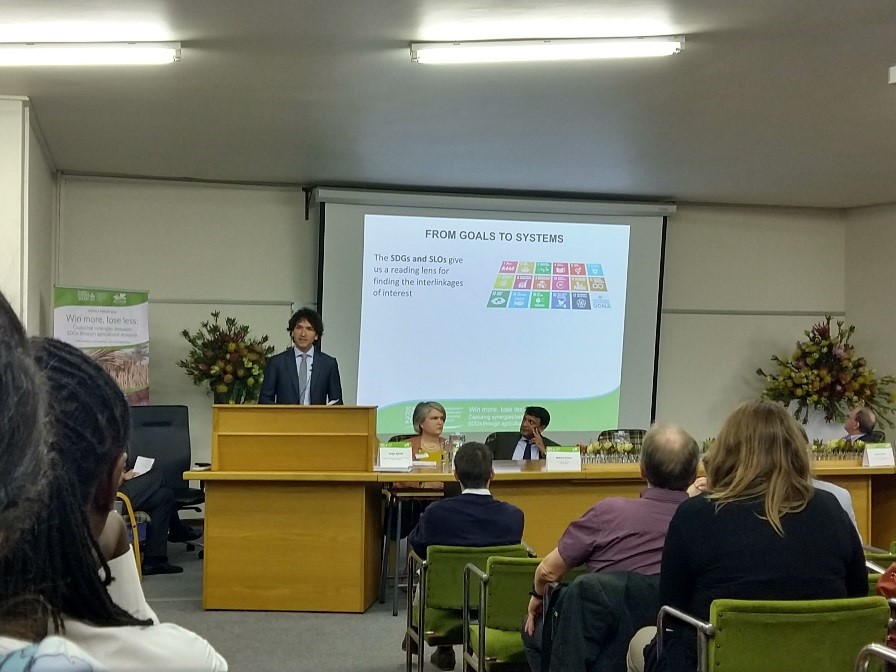
Congratulations to Benjamin Bodirsky (PIK) and the other authors with their recent publications:
- Marco Springmann, Michael Clark, Daniel Mason-D’Croz, Keith Wiebe, Benjamin Leon Bodirsky, Luis Lassaletta, Wim de Vries, et al. 2018. “Options for Keeping the Food System within Environmental Limits.” Nature, October, 1. https://doi.org/10.1038/s41586-018-0594-0;
- Tomoko Hasegawa, Shinichiro Fujimori, Petr Havlík, Hugo Valin, Benjamin Leon Bodirsky, Jonathan C. Doelman, Thomas Fellmann, et al. 2018. “Risk of Increased Food Insecurity under Stringent Global Climate Change Mitigation Policy.” Nature Climate Change 8 (8): 699–703. https://doi.org/10.1038/s41558-018-0230-x;
- Anders Arvesen, Gunnar Luderer, Michaja Pehl, Benjamin Leon Bodirsky, and Edgar G. Hertwich. 2018. “Deriving Life Cycle Assessment Coefficients for Application in Integrated Assessment Modelling.” Environmental Modelling & Software 99 (January): 111–25. https://doi.org/10.1016/j.envsoft.2017.09.010.
(follow the links to buy the publications)
SIM4NEXUS was well represented during the International Conference ‘Water Science for Impact’, which was held at Campus of Wageningen University & Research on 16-18 October. The ‘water-energy-food-ecosystem nexus’ is one of the three themes of the conference. Five partners (WUR-LEI, UNEXE/SWW, PBL, DHI and UNESCO-IHE), and (at least) 13 persons active in SIM4NEXUS did attend.
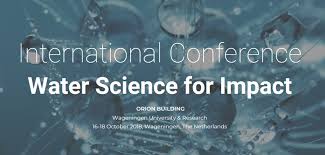
Chrysi Laspidou, a SIM4NEXUS partner from the University of Thessaly (UTH), has given a Webinar within the project “Water4Cities”. She presented preliminary results from the national case study of Greece. Her key messages are:
- Water Energy Food Security has never been threatened as today. By 2050, predictions see that energy demand will nearly double. Water & food demand is expected to increase by over 50%. All these dynamics will be worsened by climate change, so we can realise that the security of these resources is really under threat.
- The Greek case study, even though it is national, it has been modelled at the River Basin District (RBD) level in order to capture the variability of water availability throughout the country and the intense pressures some RBDs are experiencing mainly due to agriculture and tourism.
- Mapping all relevant data of availability and consumption in the Water, Energy, Food, Land Use and Climate domains creates a powerful backdrop on which various scenarios can be modelled and synergies and trade-offs can be quantified. Complexity modelling shows how a change or strategy in one sector can have cross-sectoral implications with an almost domino-like effect.
Her recorded webinar is available at: http://videolectures.net/water4cities_laspidou_sim4nexus/.
You are invited to attend the Resource Nexus Policy & Cluster Workshop organised by three H2020 projects DAFNE, MAGIC and SIM4NEXUS and the Executive Agency for SMEs (EASME). The workshop will take place on 27 November 2018 at the EASME premises (Place Charles Rogier 16) in Brussels. (Tweet)
(Tweet)
The Resource Nexus Policy & Cluster Workshop aims to bring together EU-funded projects related to the resource nexus as well as other (non-EU funded) related initiatives with the objective to stimulate peer-to-peer and science-to-policy discussions on how to get the most out of nexus research for the benefit of society and policy-making.
Please find enclosed the draft agenda.
Please confirm by 11/11/2018 if you or another member from your project is interested to participate to this event by completing the registration form at the following link: https://bit.ly/2yaI39X.

Floor Brouwer (WUR-LEI) participated in the Meeting of the Energy Modelling Platform for Europe 2018 (EMP-E 2018), which was held in Brussels on September 25 & 26. More than 50 people attended this event, which did focus on ‘Modelling clean energy pathways’. He contributed to a session, entitled ‘Integrated modelling of energy and resource efficiency’, with a presentation entitled ‘The Nexus concept for a resource efficient Europe: challenges for energy modelling’. In his presentation he also addressed some topics related to modelling the circular economy. During the discussions questions were raised regarding the factors critical to the success of science-policy interaction with Nexus dialogues. Close interaction with the local actors is of course essential, like we adopt in our transdisciplinary approaches.
.png)
KTH (Georgios Avgerinopoulos and Eunice Ramos) recently organised the first policy workshop in Baku (Azerbaijan). The workshop was organised with some local support and Stefania Munaretto (PBL) and Floor Brouwer contributed as well. The workshop was successful to discuss the Nexus concept in this country, and we started to develop two scenarios.
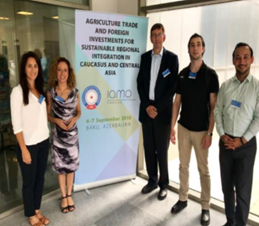
George Beers and Floor Brouwer (WUR-LEI) met with four senior staff in the Ministry of Agriculture, Nature and Food Quality (Ministry LNV) in the Netherlands to present SIM4NEXUS. There is good interest in the Nexus of water-energy-food and it was agreed to have a project presentation and we will follow-up with a seminar about the Nexus, Sustainable Development Goals and Serious Games. This is fixed for 15 January 2019. We are requested to clarify how policy currently copes with the Nexus, is System Dynamics Modelling a way to improve decision making? Could the Sustainable Development Goals support a circular economy and closing loops in agriculture? WUR-LEI and PBL will follow-up, with different case studies. This interaction supports the efforts to clarify potential services after the project.

Guido Schmidt and Maria Berglund from our partner Fresh-Thoughts Consulting participated at the EU Water Conference #EUWater2018 on 20-21 September in Vienna. At the event, there was a specific session on agriculture, and the European Commission’s post-2020 CAP proposal raised a number of discussion questions with the public. At the conference, water utilities raised their concerns on increased agricultural pollution of drinking water sources and the additional costs for treatment before drinking, as well as on the gap of implementing the polluter-pays-principle. Both provided input into a back-to-back NGO workshop, to identify synergies and conflicts between the CAP in the present 2014-2020 period and the WFD implementation, as well as to improve coherence between the policies in the post-2020 period.
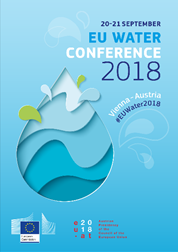
SIM4NEXUS has recently joined the collaborative platform climatechangemitigation.eu. The website aims to sum-up research and results of EU projects working on climate change mitigation. DEEDS has now formally taken over the coordination of the website. This portal collects and posts information from different EU-funded research and coordination projects on Climate Change Mitigation. It supports development of low-emission pathways for reaching the goals of the Paris Agreement, including research on low-emission technology development and diffusion, policy making and governance, as well as institutional aspects of adopting low-emission solutions. This portal is an initiative from the current Dialogue on European Decarbonisation Strategies (DEEDS).

A report published by SEI in July 2018 (Galaitsi, S., Veysey, J. and Huber-Lee, A. (2018). Where is the added value? A review of the water-energy-food nexus literature. SEI working paper. Stockholm Environment Institute, Stockholm; https://www.sei.org/publications/added-value-review-water-energy-food-nexus-literature/) has raised SIM4NEXUS concerns. We appreciate the effort and the conceptual thoughts, but we disagree on the results and impact of Nexus studies.
We believe:
1) Nexus research and implementation has just started, and a review of papers until 2016 is not meaningful;
2) the Nexus concept offers a sound way for achieving the Sustainable Development Goals, and needs to be flexible and diverse;
3) Policy is increasingly searching for more coherence and strategies reducing conflicts and exploiting synergies.
Click here to read the whole Publication.
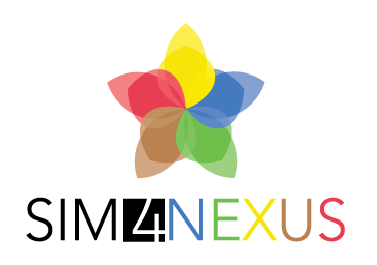
The Minister of State for Food Security, Office of the Prime Minister of the United Arab Emirates visited Wageningen University & Research on July 17. The delegation also included staff from the International Center for Biosaline Agriculture and the Government of Abu Dhabi. Floor Brouwer was invited to speak about the water-energy-food Nexus. The Nexus is an important concept for the country for both water and food. There was a good interest in policy coherence.

Floor Brouwer was invited to join a panel during the KU Leuven Symposium ‘Facing the future – sustainability, crossdisciplinarity and engagement’. The Symposium on May 9, including presentations from different teams at this University working in a cross-disciplinary way to respond to complex societal challenges. The panel, which was attended by some 50 people, focussed on systems thinking to address societal challenges (e.g. food security, climate change and circular economy). The experience from SIM4NEXUS was shared as a model to adopt systems approaches in transdisciplinary research. Also, it was concluded engagement with public policy and the business sector related to sustainability will offer major job opportunities in the coming years.
Floor Brouwer, Lydia Vamvakeridou and Gabriel Anzaldi participated in WIE2018, the annual event Water Innovation Europe, held in Brussels on June 13 & 14. These annual events are organised by WssTP, our water technology platform partner in SIM4NEXUS. It is an important platform for knowledge and business partners to meet and share innovations in the water sector. In addition, it also is an important platform to meet with representatives from the public sector and the EC is always attending. Floor and Lydia organised a meeting of the WssTP Nexus Working Group on June 13, and 8 persons discussed an annual plan for the coming year.
Gabriel and Lydia also organized a joint session on June 13 of the ICT4Water Cluster and WssTP digital working group ‘Smart water services; Bridging the digital and the physical world’. SIM4NEXUS was also identified as a front-runner project, supporting the datasharing actions in the cluster. Several partners from the ICT4WATER Cluster shared their interest and we will follow-up on this in the next couple of months.
We are proud to announce to you that the JRC will be organizing a session at ESOF 2018 (EuroScience Open Forum), the largest interdisciplinary forum on science and innovation in Europe and Chrysi Laspidou from the University of Thessaly will be delivering a TED-type talk on SIM4NEXUS!
The forum will take place 9-14 July in Toulouse, France, European City of Science 2018, while the session will take place on Friday July 13, 2018.
The session “Where is the world’s water?” will introduce with beautiful images some of the incredible findings that scientists have made about the changing resource that is water. It will feature speakers such as
Luca De Felice (Joint Research Centre), Gianpaolo Balsamo (ECMWF), Bernd Gawlik (Joint Research Centre), Richard Elelman (EURECAT/CTM and Chrysi Laspidou (University of Thessaly.
On the programme, more than 200 conferences, workshops and debates on:
- The latest scientific breakthroughs
- Future technologies and their impact on society
- The next European research policies
ESOF will also be the place to:
- Initiate projects and interdisciplinary collaborations thanks to our networking platform
- Discover new technologies from all over the world in the exhibition and the international village
- Her path-breaking science news from key influencers confirmed in the stand-alone plenaries.
If you are interested in joining us, hurry, as the early-birds deadline ends in a few days (April 30th):
What is ESOF?
The EuroScience Open Forum brings together every two years the key players of research and innovation in a city that becomes "European City of Science".
ESOF is a unique space for exchange and collaboration between:
- +4000 researchers, economic actors and European policymakers
- +80 countries
- +250 disciplines and fields of expertise
- +400 journalists
Created in 2004 by EuroScience, with the support of the European Commission, ESOF 2018 Toulouse is locally led by the Université Fédérale Toulouse Midi-Pyrénées.
Watch ESOF 2018’s promotional video
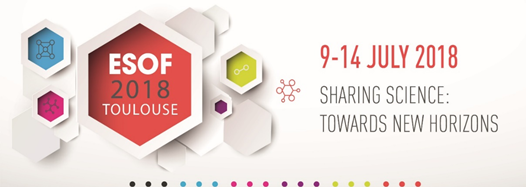
Congratulations to the Greek team for the following paper that has now been published in the Journal Geosciences (http://www.mdpi.com/journal/geosciences). Title: Virtual crop water export analysis: the case of Greece at River Basin District level. Authors: Nikolaos Mellios, Jason F. L. Koopman, Chrysi S. Laspidou. The paper is published with the journal Geosciences: http://www.mdpi.com/2076-3263/8/5/161/pdf. The paper adds to the international dimension of water, examining virtual water exports and imports for the case of Greece.
We currently discuss a resource nexus policy and cluster workshop, which is foreseen to be held in Brussels on 27 November 2018 (date remains to be confirmed, but we suggest you preliminarily block the date, back to back with WssTP’s Water Knowledge Europe event). This workshop will bring together EU-funded projects related to the Nexus, as well as other (non-EU) funded initiatives with the objective to stimulate peer-to-peer and science-to-policy discussions on how to get the most of nexus research for the benefit of society and policy-making.
Maïté Fournier represented ACTeon at this event. This international conference is dedicated to research and practices on natural and human-impacted large rivers, in particular functioning, changes and processes, interface and interactions, management policies, engineering. I.S.Rivers took place from June 4 to 8, 2018 at the University Lyon 2 Lumière, a prestigious venue situated near the Rhône river.
The article "The Water–Energy–Food Nexus: A Fuzzy-Cognitive Mapping Approach to Support Nexus-Compliant Policies in Andalusia (Spain)" has been published in Water as part of the Special Issue Innovation Issues in Water, Agriculture and Food.
The application of fuzzy cognitive mapping enabled to identify the main interconnections within the WEF nexus in Andalusia according to stakeholders’ perceptions and validate the conceptual model for the Andalusian case study. Likewise, this work also contributed to raise awareness and build consensus for the WEF nexus among the different stakeholders.
Results from the analysis show that climate change and water availability are key drivers in the WEF nexus in Andalusia. Any change in these variables (e.g., policy measure) will have a significant impact throughout the system. Other variables with significant interlinkages within the WEF nexus are food production, irrigated agriculture, energy cost, socio-economic factors, irrigation water use, environmental conservation, and farm performance indicators. The scenario analysis demonstrates the interdependencies among nexus sectors and contributes to improving understanding of the system’s dynamics.
Outcomes from this research are being used for the development of a System Dynamics Model to quantitatively assess the impact of nexus-compliant policies in Andalusia in the medium and long term.
Abstract is available at: http://www.mdpi.com/2073-4441/10/5/664, and pdf version of the full paper is available at http://www.mdpi.com/2073-4441/10/5/664/pdf. The full citation is as follows: Martinez P., Blanco M., Castro-Campos B. (2018). The Water–Energy–Food Nexus: A Fuzzy-Cognitive Mapping Approach to Support NexusCompliant Policies in Andalusia (Spain). Water 2018, 10 (5), 664. doi: https://doi.org/0.3390/w10050664
This contribution to the public consultation concerning the Evaluation of the EU Climate Adaptation Strategy focuses on the conclusions that there is longstanding Commission awareness that adaptation depends on policy coherence, that clear progress has been made in some areas of policy, but that greater separate focus on adaptation could have been more effective and synergies between internal and external action could be further pursued.
SIM4NEXUS analysis of coherence between EU policies
In the Horizon2020 project ‘SIM4NEXUS, Grant Agreement No. 689150, the coherence was analysed between EU policies along the nexus of water, land, energy, food and climate (WLEFC-nexus). From 66 recent EU policy documents aimed at WLEFC sectors, 33 policy objectives were selected, and the coherence scored between all possible combinations of pairs of these objectives. The question was how objective B would be influenced if progress was made in reaching objective A and the other way around, how objective A would be influenced if progress was made in reaching objective B, which is not always symmetric. Scores varied from ‘Cancelling’, it is impossible to reach both objectives and a choice or compromise must be made, to ‘Indivisible’, objectives are inextricably linked. In between were the scores ’Counteracting’, ‘Constraining’, ‘No significant interaction’, ‘Enabling’ and ‘Reinforcing’.
Results
We agree with the conclusion that there are numerous opportunities for synergy between climate adaptation and other policies in the WLEFC nexus, that could be further explored.
Promoting climate adaptation in key vulnerable EU sectors and in Member States – one of the 33 selected EU objectives in the WLEFC nexus- stimulates 16 out of the other 32 objectives and potentially counteracts 3, depending on the context and the way policies are worked out. Promoting adaptation in key vulnerable EU sectors and Member States enables and reinforces environmental objectives, such as good water quality and sufficient water quantity for all uses. Extending forested areas for adaptation purposes creates opportunities to harvest biomass and mitigate greenhouse gas emissions. Climate adaptation is also inextricably linked to energy security; for example, by ensuring sufficient water for cooling or protection of infrastructure against flooding. Adaptation reinforces the achievement of objectives in the agricultural sector, including support for farm incomes and competitiveness, and enables rural development. On the other hand, climate adaptation may cause a rebound effect. By implementing adaptation measures against drought, more water becomes available during dry periods and more hydropower can be produced. Depending on the context, this may discourage water efficiency improvements and reduction in water consumption. It may also increase energy use in water exploitation and management.
The other way around, climate adaptation profits if progress is made in 15 out of the other 32 selected WLEFC objectives. Improving soil quality and forest conservation are adaptation measures per se and improving water management is inextricably linked to climate adaptation. Increase of water efficiency and reduction of water and energy use make economic processes less vulnerable to climate change. Finally, provided that greening and cross-compliance measures are effectively enforced, the pursuit of objectives in the agricultural sector and rural development may enable climate adaptation.
Improving the competitiveness of the agricultural sector may have a negative or positive impact on climate adaptation, depending on what measures are implemented. High tech cultivation with minimal use of water, energy, nutrients and pesticides, improves competitiveness and decreases dependence on resources that become scarcer by climate change. But high competitive agriculture for food, feed and bio-energy may also increase the need for water and energy and may decrease the hydrological buffer capacity of an area.
Please find more information here, including the table with all the coherence scores between the 33 EU WLEFC objectives on page 45:
https://www.sim4nexus.eu/userfiles/Deliverables/WP2_Deliverable%202.1_15nov17_FINAL.pdf.
Find a policy brief here:
EPSILON attended the 26th ArcGIS User Conference, 10-11 May 2017 and presented SIM4NEXUS and its GIS applications. Conference agenda (in Greek): http://www.marathondata.gr/events/docs/MDS_SYNEDRIO_2018.pdf
The first workshop of the Swedish case study took place on April 18, 2018, at the Clarion Hotel® Gillet in Uppsala, Sweden. The workshop was organized by the Department of Earth Sciences, Uppsala University (UU), and gathered 10 Swedish stakeholders from two municipalities, the Swedish Forest Agency, the Swedish Food Agency, an environmental consultancy company, an NGO and two universities. During the workshop, the SIM4NEXUS project was presented in detail and tools such as thematic models, system dynamics modelling and the serious game were introduced. The workshop aimed at revealing conflicts and synergies between policy goals, assessing interactions between policy instruments and identifying the interactions between national and EU policies. In addition, the conceptual model was discussed and further developed together with the participants. Interesting issues were raised during the workshop. For example, stakeholders emphasized that they would like to see solutions regarding how to reach more synergies (e.g. by applying certain instruments or through a more systemic view on different sectoral issues). Participants also believe that a better education of schoolchildren is necessary to improve the next generation’s understanding of complex interactions within the Nexus.
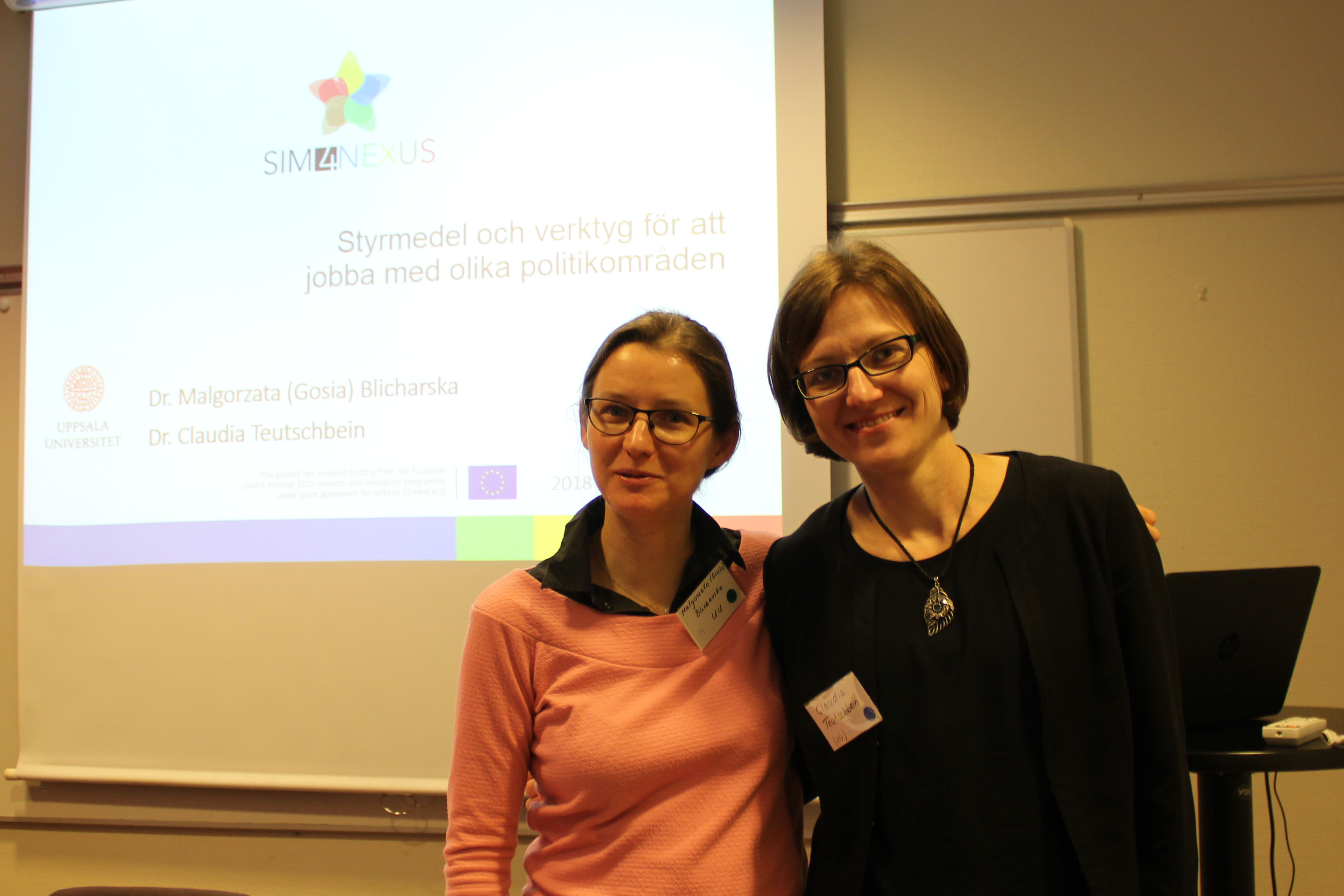
Scientific publication that presents the participatory process followed to engage stakeholders in the Andalusian case study.
The application of fuzzy cognitive mapping enabled to identify the main interconnections within the WEF nexus in Andalusia according to stakeholders’ perceptions and validate the conceptual model for the Andalusian case study. Likewise, this work also contributed to raise awareness and build consensus for the WEF nexus among the different stakeholders.
Results from the analysis show that climate change and water availability are key drivers in the WEF nexus in Andalusia. Other variables with significant interlinkages within the WEF nexus are food production, irrigated agriculture, energy cost, socio-economic factors, irrigation water use, environmental conservation, and farm performance indicators. This implies that any change in these variables (e.g., policy measure) will have a significant impact throughout the system.
Outcomes from this research are being used for the development of a System Dynamics Model to quantitatively assess the impact of nexus-compliant policies in Andalusia in the medium and long term.
On April 24, Wageningen Economic Research, PBL and IHE Delft organized the second workshop of the Netherlands case study titled “What is the role of biomass in the realization of a low-carbon and resource efficient economy in the Netherlands in 2050 and onwards?” The workshop was held at the Netherlands Environmental Agency (PBL) office in The Hague. It was a one-day workshop which was divided into two sessions. In the morning, the conceptual model of the Netherlands case study was discussed as well as the System Dynamic modelling approach was presented. The main new issues raised by the stakeholders were to include the demand for biomass of the chemical sector, and the carbon storage capacity of the soil, amongst others. Also, the stakeholders discussed the context of this national case. What will the model assume about the climate and other interventions at European and global scale and what will this mean for the effectiveness of Dutch policies? This latter issue is relevant for all national and regional cases.
In the afternoon session, the results of the policy analyses were discussed and an inventory was made of possible interventions. The policy analysis was based on interviews, workshops and a review of the relevant policy documents (agriculture & food, energy and biomass climate, nature, spatial planning, waste & circular economy, and water policy). Based on the policy objectives there is a lot of coherence in the policy goals, which is not always observed in practice. Among the issues mentioned were economic incentives that not always work well in practice, too much external effects and not enough focus on high-end usage of biomass in the value chain. For the possible interventions, we played the Biomass Policy Joker card game prepared by Maria Witmer. Within small groups of 4-5 stakeholders, interventions were suggested and discussed and voted for or against, which led to 15 suggested interventions per group. The results i.e. the lists of 15 interventions of each of the four groups, were quite different from one group to another. The next step will be to review the conceptual model to include the relevant sectors and nexus elements, and to include interventions as suggested by the stakeholders. The selected interventions as well as the translation of these interventions into model input will be checked with a larger group of stakeholders.
Floor Brouwer did attend the fourth conference of the National Water and Climate Knowledge and Innovation Programme, held on April 17 and hosted by Wageningen UR (https://waterenklimaat.nl/?lang=en). As part of the conference, he joined a session (some 15 participants) called ‘Improve the serious game Smart Water Management’, which was very informative.
Each player of the game had a specific role (e.g. representative of a regional water board, of the Ministry of Infrastructure and Water, of the farmers’ organisation, of the media), and had to negotiate with others to propose a measure. Such a measure was introduced into a model and its outcome was available for the next round. The Game has been used with professionals, who showed to have in-depth knowledge of their own region and much more limited knowledge about surrounding regions. Players were informed at the start about the water challenges and initial environmental conditions. Measures included climate adaptation.
Maria Blanco (UPM) has announced the upcoming CAPRI Training Session, which will take place 18-20 September 2018 in Uppsala, Sweden. Applications must be sent before 20th August to CAPRI_TS2018@slu.se. We accept max. 40 participants, at a “first come, first served” basis. More details about applications, training program and important dates can be found in this link: http://www.capri-model.org/dokuwiki/doku.php?id=capri:upcoming, as well as in the course brochure: http://www.capri-model.org/dokuwiki/lib/exe/fetch.php?media=capri:ts:ts_invitation_2018.pdf
On March 19, Floor Brouwer did attend an afternoon session at the Ministry of Infrastructure and Water Management in the Netherlands. The event focussed on main trends in society and several pitches were presented regarding main trends which emerge from society. He did pitch on ‘Water-energy-food Nexus to strengthen policy coherence, both nationally and internationally’. Some 20 people from the Ministry did join the event, sharing ideas about main trends in society and emerging trends; the event follow-up on a recent report from the Government on main trends. For those who read Dutch.
See: https://www.communicatierijk.nl/documenten/publicaties/2017/12/13/trendrapport-iedereen-aan-zet.
Chrysi Laspidou (UTH) did participate in a decarbonisation event in Brussels on February 7th and summarized the project in a short pitch. It is great to see such a summary just in a minute. Have a look at: https://twitter.com/EU_ecoinno/status/971419577883267072
EASME has released the presentations from the Decarbonisation project networking workshop held on 7 February 2018. All presentations are now available on the EASME website.
Following an open call, Chrysi Laspidou (UTH) was selected to be part of the Steering Committee of the KnowledgeAction Network of the Future Earth Water-Energy-Food Nexus. The mission of Future Earth is to accelerate transformations to global sustainability through research and innovation. Her contribution to Future Earth will be beneficial towards a better understanding of the Nexus and in this capacity to enhance the sharing of this knowledge. This will be great for SIM4NEXUS.
See also: http://futureearth.org/
More than 60 participants attended the project meeting, hosted by UTH. The project convened for 2 days (March 14 and 15), and we had a successful workshop on the Nexus on March 16.
WUR-LEI and PBL were invited to present the project to the Dutch Water Authorities. Fifteen staff members joined our presentations about the Serious Game, our work on policy coherence and of course the national case study. Floor Brouwer, Maria Witmer, Nico Polman and Trond Selnes contributed to the two-hour session, where we discussed the water dimension of biomass production, the circular economy, a low-carbon economy, and soil quality.
Congratulations to Sara Masia (currently with UN-IHE) and her co-authors for the publication of a paper in Water. The full reference of the paper reads as: Masia, S.; Sušnik, J.; Marras, S.; Mereu, S.; Spano, D.; Trabucco, A. Assessment of Irrigated Agriculture Vulnerability under Climate Change in Southern Italy. Water 2018, 10, 209. The paper is accessible through: http://www.mdpi.com/2073-4441/10/2/209
Floor Brouwer was invited to present the project during a lecture at the Centre for Water Studies (University of Exeter). Some 30 postgraduate students, research and academic staff joined the presentation entitled ‘Water-food interlinkages and the Nexus’.
Link to slideshare: https://www.slideshare.net/SIM4NEXUS/waterfood-interlinkages-and-the-nexus
Floor Brouwer (WUR-LEI), Chrysi Laspidou (UTH) and Vassilia Fassouli (Epsilon) did participate in this workshop, which was held in Brussels on 7 February 2018 (co-organized by DG Research and Innovation and the Executive Agency for SMEs – EASME). Some 45 participants attended the workshop, including representatives from 18 on-going H2020 projects, as well as 20 persons from the European Commission (DG RTD, EASME and DG CLIMA). The workshop did bring together EU funded climate mitigation projects with the objective to stimulate peer-to-peer and science-to-policy discussions on how to get the most out of EU-funded projects for the benefit of society and policy-making. SIM4NEXUS was presented during a panel discussion on the costs and challenges of low-carbon transition in main emitting sectors in the EU.
The project was also part of the poster session. During the discussions there was great interest in the topic of uncertainty in modelling (which we started recently in Task 1.4). Also, DG CLIMA announced the upcoming COP24, which is going to be held in Katowice (Poland), 3-14 December 2018. Carbon neutrality is going to be one of the main topics, and we might propose side-events in a way similar we did last year during COP23. During the discussions, DG CLIMA emphasised the importance of integrated assessments models, appreciated the criticism to such models, confirmed that research is needed that adds to it and emphasised it should not only be critical. Our project looks like a nice addition to the strong modelling approaches in several decarbonisation projects.
A Dutch magazine called ‘Milieu (Netwerk voor Milieuprofessionals)’ recently published a paper on policy coherence related to biomass production in the Netherlands. The authors adopt the concept of the Nexus. The authors (Roos Marinessen (Free University, Amsterdam), Vincent Linderhof (WUR-LEI), Maria Witmer (PBL) and Stefania Munaretto (PBL) argue in favour of policy coherence to achieve a low-carbon economy. Zie ook: https://vvmbureaumy.sharepoint.com/personal/beheerder_vvmbureau_onmicrosoft_com/Documents/Gedeeld%20met%20leden%20%20NIET%20VERWIJDEREN/Losse%20artikelen/Milieu%2020177/Samenhang%20van%20beleid%20versterkt.%20Tijdschrift%20Milieu,%2023(7).pdf?slrid=9ccc389e-0064-4000-d132b05caf393e39
Our paper on ‘Energy modelling and the Nexus concept’ is now accessible on-line. The article is being published Open Access, access is not restricted in any way. This article can already be cited as: F. Brouwer, et al., Energy modelling and the Nexus concept, Energy Strategy Reviews (2017), https://doi.org/10.1016/j.esr.2017.10.005. See also: https://www.sciencedirect.com/science/article/pii/S2211467X17300652
The ICT4WATER cluster (currently including 30 ICT-related projects that support innovations in the European water sector) met on 1 December 2017 in Brussels. SIM4NEXUS contributed to the event, hosted by DG CONNECT. Gabriel Anzaldi (EURECAT), presented the Action Plan, and Andrea Rubini (WssTP) shared his reflection on the implementation of the Action Plan. During the lunch session, Lydia Vamvakeridou-Lyroudia (UNEXE) presented the innovations from recently completed projects and Floor Brouwer (WUR-LEI) presented SIM4NEXUS. SIM4NEXUS is happy to contribute to data sharing which is one of the target areas, and we are well-placed to contribute to the development of cross-domains data sharing mechanisms, covering the water, energy, food, land and climate Nexus. The Flash Report is published on the website, http://www.ict4water.eu/index.php/action-plan-2017-flash-report/ including all presentations.
A SIM4NEXUS paper has been submitted to the Journal Water. The title is: “Multi-stakeholder development of a serious game to explore the water-energy-food-land-climate nexus: the SIM4NEXUS approach” and the authors are: Janez Sušnik (UNESCO-IHE), Chengzi Chew (DHI), Xavier Domingo (EURECAT), Simone Mereu (UNISS), Antonio Trabucco (UNISS), Barry Evans (UNEXE), Lydia Vamvakeridou-Lyroudia (UNEXE), Dragan A. Savic (UNEXE), Chrysi Laspidou (UTH), and Floor Brouwer (WUR-LEI). Please let us know if you’re interested!
Our team member Janez Sušnik (UNESCO-IHE) has submitted a paper to the Journal Resources, Conservation and Recycling (IF: 4.2). It is titled “Data-driven quantification of the global water-energy-food system”. The paper concludes GDP (gross domestic product) and the electricity consumption sectors are strongly correlated, while food production and electricity consumption are weakly correlated. Access to the paper is through: https://www.sciencedirect.com/science/article/pii/S092134491830082X. He will present it at the upcoming Nexus conference in Chapel Hill (April 2018).
The first policy brief of the EU funded SIM4NEXUS project on ‘Coherence in EU policy on water, land, energy, food and climate’ is now launched to shed light on synergies and trade-offs between policy objectives in the water-land-energy-food-climate (WLEFC) nexus. It also discusses the implications for the EU strategy on climate change adaptation as well as national adaption efforts. Being comprised of water, land, energy, food and climate, the ‘WLEFC nexus’ constitutes a complex system influenced by numerous policies, including those that address sectors outside the nexus. The good news, though, is that European policy objectives along the WLEFC nexus are largely coherent. The policy brief indicates that adaptation to climate change is indivisible from the achievement of numerous EU policy objectives in the nexus.
Link to Website: http://www.acclimatise.uk.com/2017/12/11/climate-change-adaptation-from-a-water-land-energy-food-climate-nexus-perspective/
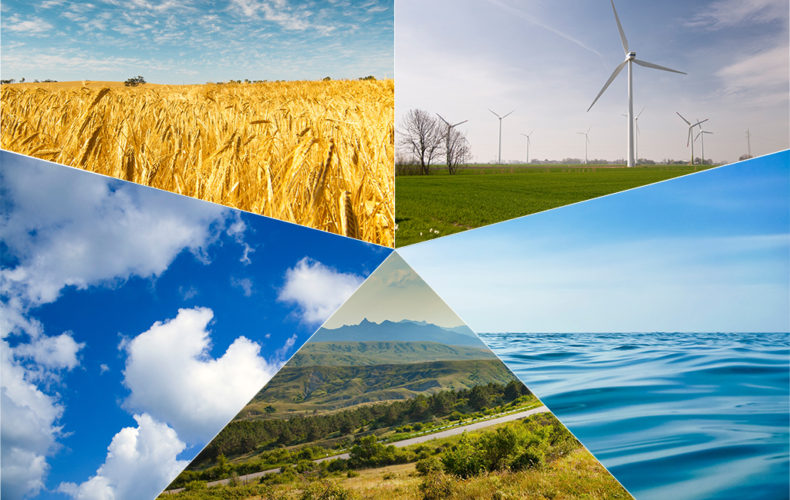
SIM4NEXUS is a Horizon 2020 project which aims to address knowledge and technology gaps and thereby facilitate the design of policies within the Nexus. Florian Knobloch is a researcher at Radboud University Nijmegen and he deals in the project team with the analysis of uncertainty. At our last SIM4NEXUS meeting, Florian organised a side event on the “uncertainty monster” – this sounds rather awful to many professionals working in policy development and might make them reluctant to trust any scenarios or the serious game developed by SIM4NEXUS and other projects or initiatives. We hope this short interview clarifies how uncertainty can and shall be managed in modelling and scenario development for the Nexus.
Question: Florian, first of all, what is the “uncertainty monster”?
Response: We live in a world which is inherently uncertain. We do not know what will happen tomorrow, and we only have limited insights into the underlying dynamics. This is particularly true for complex environmental-economic problems like the food-water-energy nexus. For researchers and policy-makers alike, such systems are ‘moving targets’. Time is running, but our understanding remains limited. Therefore, the aim can only be to make appropriate decisions given the best of our knowledge, instead of striving for ‘optimal’ decisions based on an unachievable ideal of perfect knowledge. The researcher Jeroen van der Sluijs introduced the ‘uncertainty monster’ as a metaphor for the ‘monstrous’ uncertainties that scientists face at the science-policy interface, when generating the knowledge base of such complex environmental problems.
Question: Why is uncertainty important for the scenarios of our Nexus policy assessments?
Response: Let’s take the example of behavioural uncertainty. Humans don’t always follow clear behavioural rules and may react in different uncertain ways. Most policies are aimed at people. So if a new policy is introduced, how might they react to it? For example, if the policy target is a reduction of energy demand, how could purchase choices of households and firms be steered towards more energy-efficient technologies? Will people act perfectly rational, so that they immediately react to even small cost changes? To which extent will their decisions be influenced by their social contacts? The choice of such behavioural assumptions can greatly impact the outcome of policy scenarios. There is a substantial body of psychological and sociological research on such questions. Still, we can never be fully certain about a policy’s effect before it is implemented in reality. With the help of model simulations, we may at least get a rough idea. By explicitly considering behavioural uncertainties in our modelling, we can try to identify robust policies, which would lead to the desired effect under different assumptions on human behaviour.
Question: What are the risks when not dealing well with the possible uncertainties?
Response: There is one fact that we know for certain about the ‘uncertainty monster': that there is no escape from it. In the Nexus, the ‘monster’ is simply too big to hide. When its role is downplayed, people may question the credibility of model-based assessments, and eventually loose trust in our research. At the same time, overemphasising uncertainty may distort and magnify its importance, and could even lead to the denial of known risks. For example, despite decades of thorough research, there are still uncertainties about how the earth’s climate system works in detail. However, despite these uncertainties, the system is understood sufficiently well to allow an informed analysis of human-induced climate change.
Question: How would you recommend to deal with uncertainties, and how should we communicate about them?
Response: There are different strategies for dealing with the ‘uncertainty monster’. First, we can try to quantify uncertainties where possible. One way is to systematically vary the values of uncertain inputs to our models, and then analyse how these uncertainties propagate throughout the model and impact our results. Second, we should be transparent about uncertainties which cannot easily be quantified, and should clearly describe all assumptions, such as regarding the model structure. Last but not least, we need to communicate explicitly that the aim of SIM4NEXUS is not to forecast the future, but to better understand the complex interactions between food, water, energy and the wider economy. However, even the best project cannot eliminate all uncertainties. It may even reveal new complexities, making things more uncertain than previously thought. We model for insights, not for predictions.
Question: What have been your main learnings from the SIM4NEXUS project so far?
Response: The SIM4NEXUS team combines excellent researchers from very diverse academic backgrounds, from all over Europe. Climate scientists, social scientists, land use modellers, economists, engineers, hydrologists – everyone has a different perspective and expertise. Dealing with the Nexus requires all of them. There are so many possibilities to learn from each other. Therefore, I’m convinced that as a team, we don’t need to be afraid of any ‘monsters’.
Florian, thank you very much!
If you have any further question, please have a look at Florian’s presentation at https://www.slideshare.net/SIM4NEXUS/a-rendezvous-with-the-uncertainty-monster and/or contact him directly at f.knobloch@science.ru.nl.
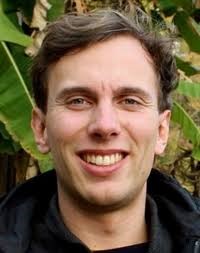
By Floor Brouwer, Phoebe Koundouri, Tamara Avellán, Jasminko Novak, Rachel Ahrens, Chrysi Laspidou and Guido J. Schmidt. A Nexus workshop with more than 50 participants was held on 16 March 2018 in Athens by SIM4NEXUS and DAFNE, in collaboration with the Greece United Nations Sustainable Development Solutions Network (UNSDSN), to share knowledge among Nexus research groups, compare work among different Nexus-related projects, and seek ways for future collaboration.
Key aspects of the discussion were the Nexus terminology, how to assure welfare of people, the policy coherence, the need to share data and the usefulness of employing Serious Games. Find the full text of our thoughts and reflections at: https://www.water-energy-food.org/news/2018-04-09-sim4nexus-and-dafne-key-results-from-the-knowledge-exchange-workshop-of-nexus-projects/.
Link to Slideshare: https://www.slideshare.net/SIM4NEXUS/dafne-project
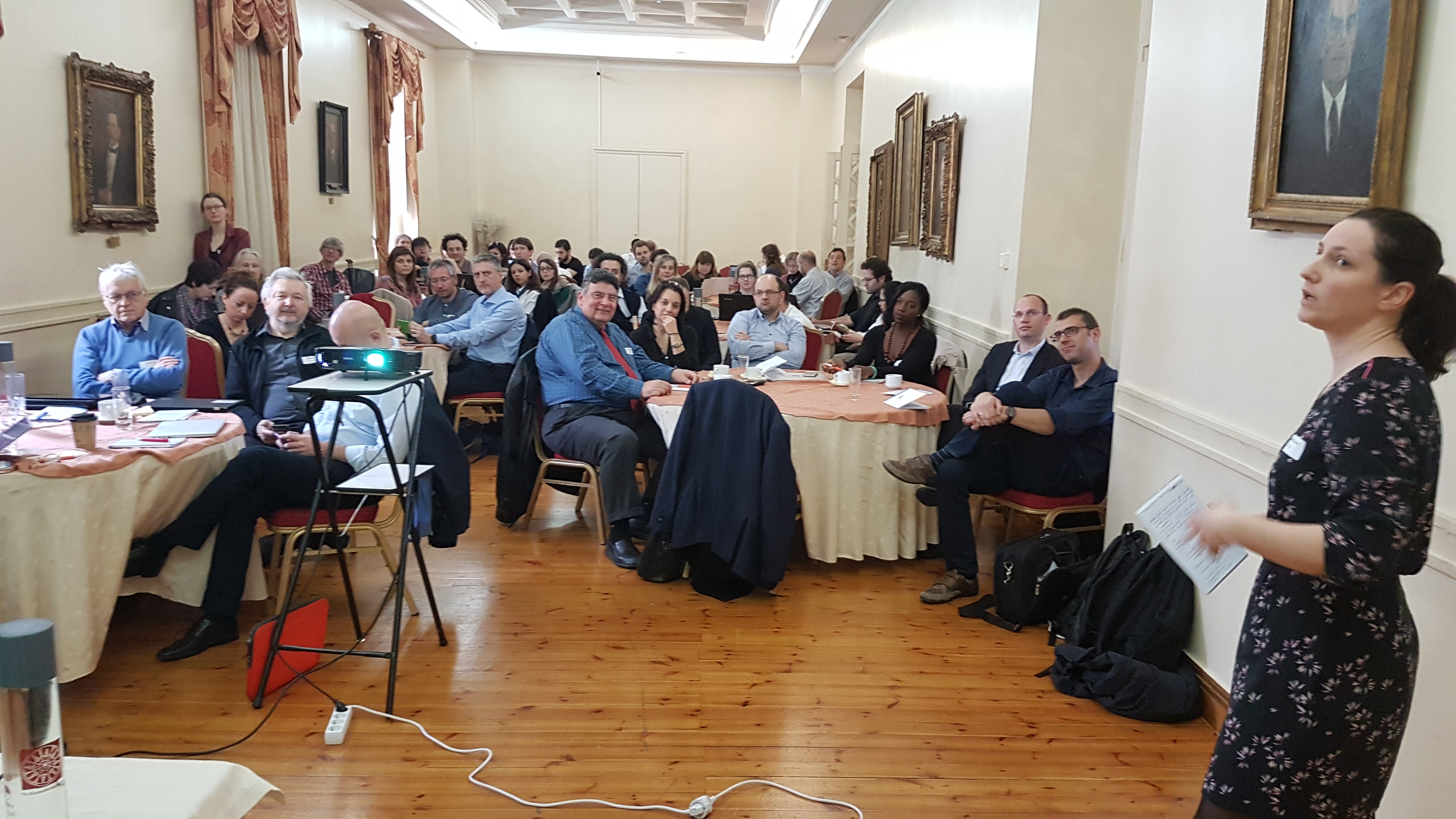
At the recent COP 23, SIM4NEXUS co-organized an EU side event entitled "The Water-Food-Energy Nexus" on 11 November. Jointly organized by WUR-LEI and UNIDO, the event presented the concept of nexus assessments, including its further development under the SIM4NEXUS and ISWEL research projects. The event focussed on examples of climate action in the fields of energy and food, as well as land use policies. Participants discussed specific tools being developed to identify interactions and competition among various resource uses and to improve policy coherence. The session highlighted the importance of the topic and the direction the activities have taken. There was a wide recognition of the strong interaction between Water-Energy-Food at varying geographical and temporal scales and this is important! Further collaborations among Nexus enthusiasts were also discussed.
Chrysi Laspidou (UTH) co-chaired the event with Robert Novak (United Nations Industrial Development Organization, UNIDO). From the SIM4NEXUS project, speakers included Jason Levin-Koopman (WUR-LEI), Robert Oakes (UNU) and Maria Witmer (PBL).
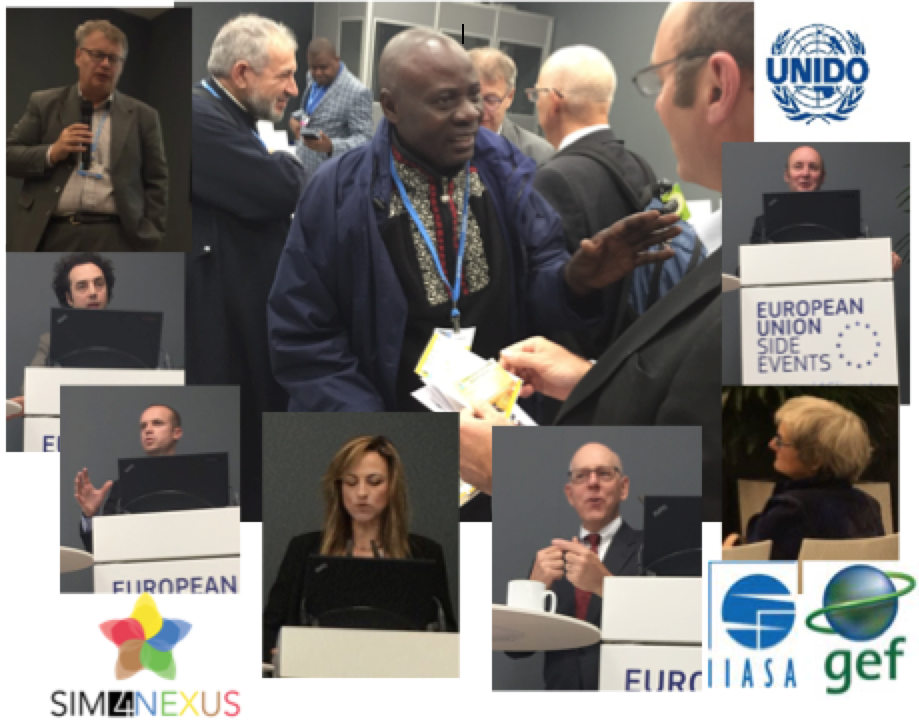
On the 19th of October Robert Oakes (UNU) attended the Nexus Dialogue Series of the United Nations Environmental Management Group (EMG) in Geneva titled "Strengthening partnerships between the environmental and humanitarian sectors in the context of the humanitarian change agenda and the Sustainable Development Goals (SDGs)". The aim of the Series is to enable partners to view the SDGs from a nexus perspective, acquaint themselves with available nexus methodologies and seek to identify practical strategies for integrating the nexus approach into their mission and work. At the meeting, Robert raised the need to consider the environmental nexus within the humanitarian sector and highlighted how serious games can aid in the understanding of the environment/humanitarian nexus.
A summary of the meeting can be read here.

Dr Dora Fazekas from Cambridge Econometrics held a presentation about first results of the SIM4NEXUS project at the 10th International Conference on “Energy and Climate Change”, which was held from 11-13 October 2017 in Athens Greece. Entitled “Supporting global and European climate and energy policy-making through the nexus approach”, Dr Fazekas spoke at the Scientific Session 2: Energy - Climate change – Renewable Energy Sources”. Dr Fazekas presented the approach of SIM4NEXUS overall, while focussing on the Azerbaijan Case Study. The continued challenge of the limited availability of detailed economic and energy data in the region was highlighted and how the case study partners were working to overcome the barriers through different solutions.
The presentation given by Dr Fazekas can be viewed here.
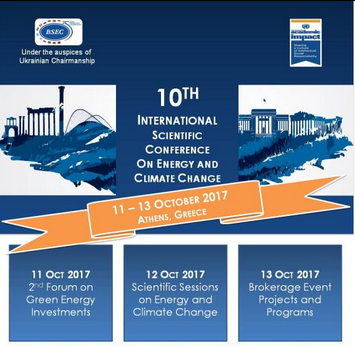
We are happy to disseminate the second announcement and call for papers for the 3rd EWaS (Efficient Water Systems) International conference which will be held in Lefkada Island (Greece) on 27-30 June 2018.
Many topics will make the program very rich, but we would like to attract your attention on two specific special sessions we are going to organize within the framework of this conference:
Small-scale hydropower generation in urban and rural areas: the hydraulic and mechanical analysis of Energy Recovery in water systems (chair: prof. Maurizio Giugni)
Water distribution system modeling, simulation and management (chair: prof. Marco Franchini)
E-Proceedings with the full papers will be distributed at the Conference. All papers (after at least 50% revision compared to the ones presented at the conference) will be eligible for publication in special issues of SCI Journals with an Impact Factor, following a standard peer-review process. More details are at:http://ewas3.civ.uth.gr/proceedings.html
We are now calling for abstracts whose deadline is October 15th, 2017 (for more details, see also http://ewas3.civ.uth.gr/abstract_submission.html)
Please visit the website for more information on conference registration, fees, program and accommodation: ewas3.civ.uth.gr

The Nexus Conference April 16-18th 2018 will focus on the connection between the urban level and the global agendas of the Sustainable Development Goals and the New Urban Agenda. While recognizing the Addis Ababa Action Agenda provides a foundation covering cooperation on a range of issues including technology, science, innovation, trade and capacity building for implementing the global sustainable development agenda.
It will address the tradeoffs as they related to Water-Energy-Food, while accepting changes such as climate change and urbanization that can be seen as prime movers and health and migration as impacts.

Floor Brouwer did attend a brokerage event of H2020 research in the bio-economy, held at the Ministry of Economic Affairs on 28 September 2017. Interesting was a conclusion that many innovations result from using existing knowledge. Not surprisingly there was agreement that international collaboration is important in solving societal challenges. A SIM4NEXUS poster was presented during the network lunch. It offered new contacts to interact in this Ministry. More than 100 experts from policy, the business sector and research discussed the involvement of the Netherlands in H2020.
The first workshop within the Andalusian Case Study took place successfully at the Regional Ministry of Agriculture in Seville on Thursday 26 October. The workshop, led by Maria Blanco, Bente Castro and Pilar Martinez from UPM, brought together 16 stakeholders from different Regional Ministries, public agencies, river basin authorities, professional agricultural associations, water user associations, environmental NGOs and research centres. The event allowed for presenting in detail SIM4NEXUS project to the stakeholders, as well as discussing about the water-food-energy Nexus in the region. As a result of the application of diverse participatory methodologies, the main interlinkages and challenges in the Nexus were identified and different potential policy scenarios were selected.
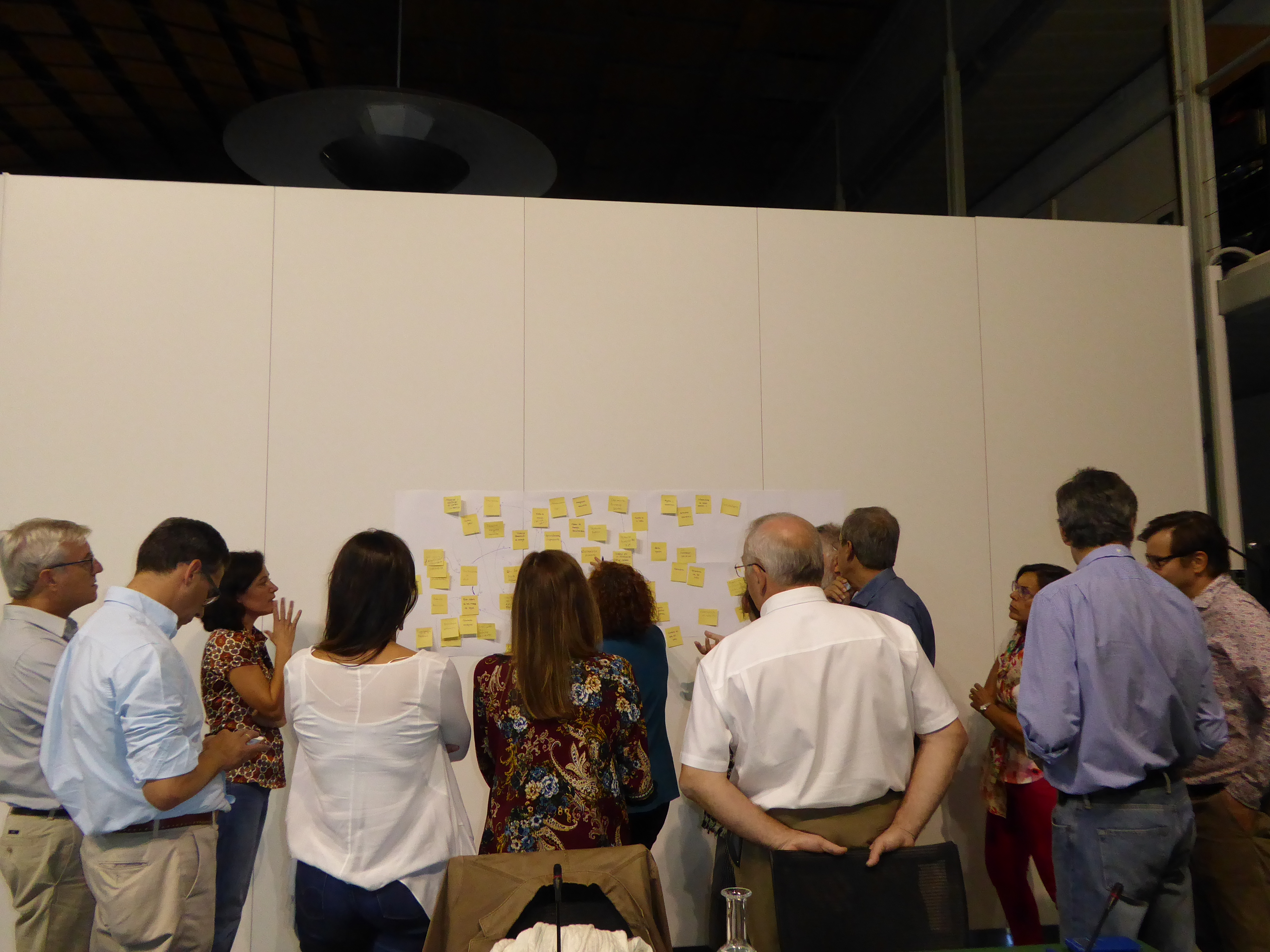
On 26 October, The Netherlands Case Study held a workshop in The Hague entitled “What is the role of biomass in the realization of a low-carbon economy in the Netherlands in 2050?”. Hosted by Wageningen Economic Research and PBL Netherlands Environmental Assessment Agency, the workshop brought together 18 stakeholders from the national government, provinces, NGOs, business and research centres. The nexus of climate, water, energy, land and food policies was presented within the context of biomass use for energy production. Stakeholders actively discussed the opportunities and challenges for the use of biomass as an energy source. They also provided solutions for the challenges to turn them into opportunities. Interesting issues were raised during the workshop such as the somewhat negative image of biomass as energy source and the power of public opinion on biomass and its applications.
Dr. Dora Fazekas from Cambridge Econometrics, presented SIM4NEXUS in her Presentation “Supporting global and European climate and energy policy-making through the nexus approach” at the Green Energy Investments Forum in Athens, Greece 11th October 2017.
With the aim of increasing the project’s impact and facilitate the engagement of stakeholders and media, in particular in the case studies, SIM4NEXUS has hold an online webinar on 5 September 2017, in which 12 project staff participated. The presentations by Linda Romanovska (FT) and Maria Mirachtsi (WssTP) covered:
- Communication principles, target audiences and key messages of SIM4NEXUS
- The work flows from our Communications Strategy relevant for cases, e.g. organising workshops
- How to work with media?
We had also time for discussions and hope that participants find it now easier to get media and stakeholders on board, and to manage (social) media, e.g. twitter.
If you’re interested in participating in a similar webinar at another time, please let us know, and we see how we can best manage it. We also discussed to:
- Put an “elevator pitch” competition on the preliminary agenda of our next team meeting in Athens
- Organise another online meeting end this year based on the “lessons learned” from those actively involved in communicating SIM4NEXUS, e.g. Floor, Stefania, Maria, Pilar…
And of course we are open and available for further questions.

The workshop “Interdisciplinary approaches to assess and model the urban water-energy nexus” took place in Karlsruhe, Germany from the 31st of July until the 1st of August. The Institute for Technology Assessment and Systems Analysis (ITAS) under the roof of the Karlsruhe Institute of Technology organised the network event together with the Institute for Sanitary Engineering, Water Quality and Solid Waste Management (iswa) from the University of Stuttgart and funding from the Water Research Network Baden-Württemberg. The event aimed at linking different research approaches on the water-energy nexus. The target groups were doctoral and post-doctoral students. During the workshop, various synergies and transferable solutions among the research topics have been discovered and discussed. Especially the topics of linking models, engaging different stakeholder groups and translating model results to various audiences were of great interest. Some open (research) question have been identified, for example how to assess tradeoffs in the modelling process and how to include sustainability (indicators) into Nexus research.
Gitta Koellner, in the name of ACTeon, presented the SIM4NEXUS project and roadmap to the group. Special interest was shown for the Serious Game as a way to translate and visualize research output. The exchange on the applied methodologies fostered cooperation between research projects.
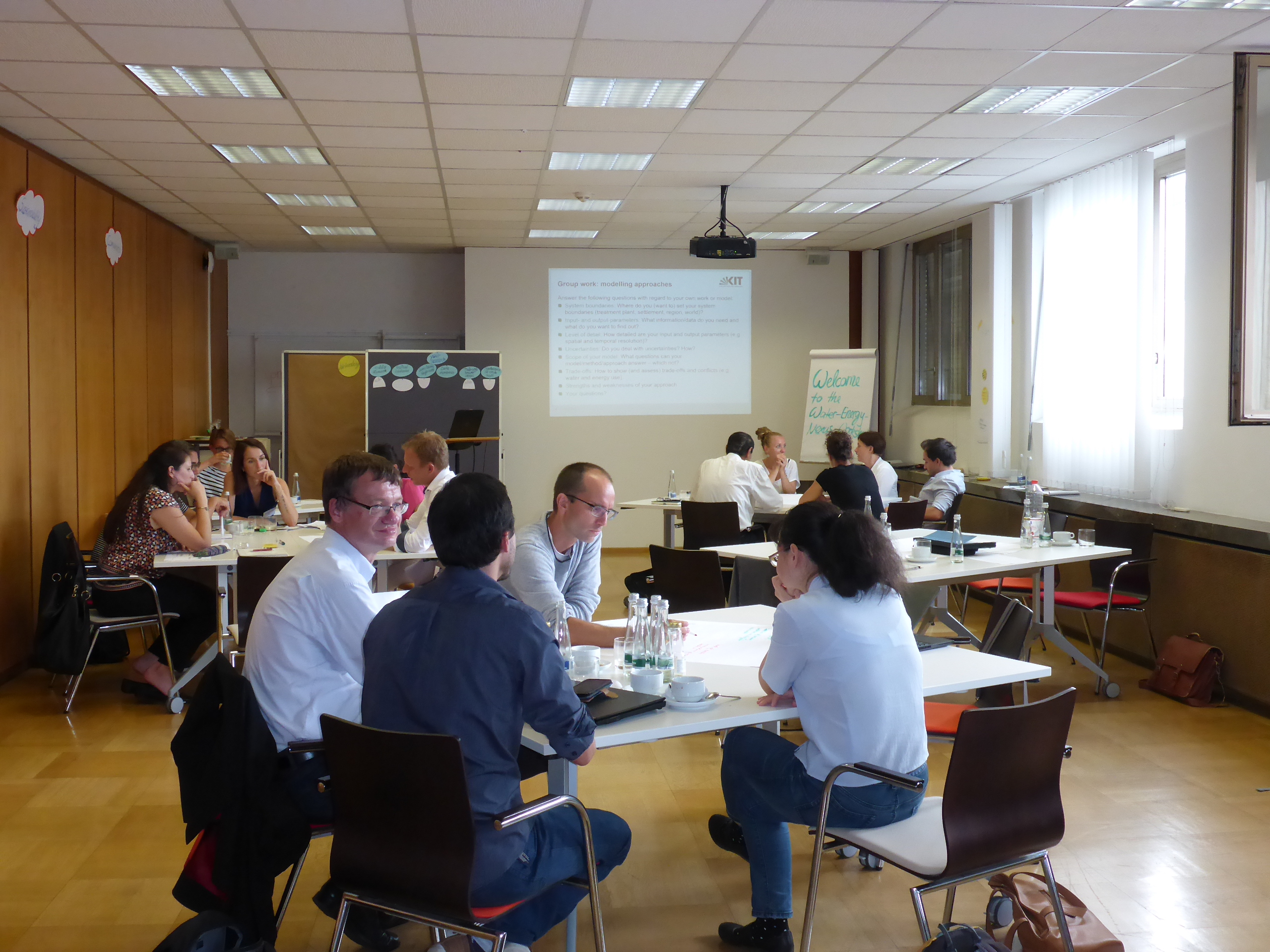
EMP-E kicked off on May 17 in Brussels and more than 80 participants from the European Commission (DG Research and Innovation, DG JRC, DG Energy and DG Clima) as well as from a large number of European modelling groups. Floor Brouwer (WUR-LEI) and Hector Pollitt (CE) contributed to the start-up of the new Energy Modelling Platform (EMP-E). Their presentation did focus on ‘Energy modelling and the Nexus concept: design and tools in SIM4NEXUS’. There was a re-confirmed interest in the Nexus from the audience. Other partners attending this platform event were Mark Howells (KTH), Georgios Averinopoulos (KTH), Ioannis Pappis (KTH) and Jean-Francois Mercure (RU).
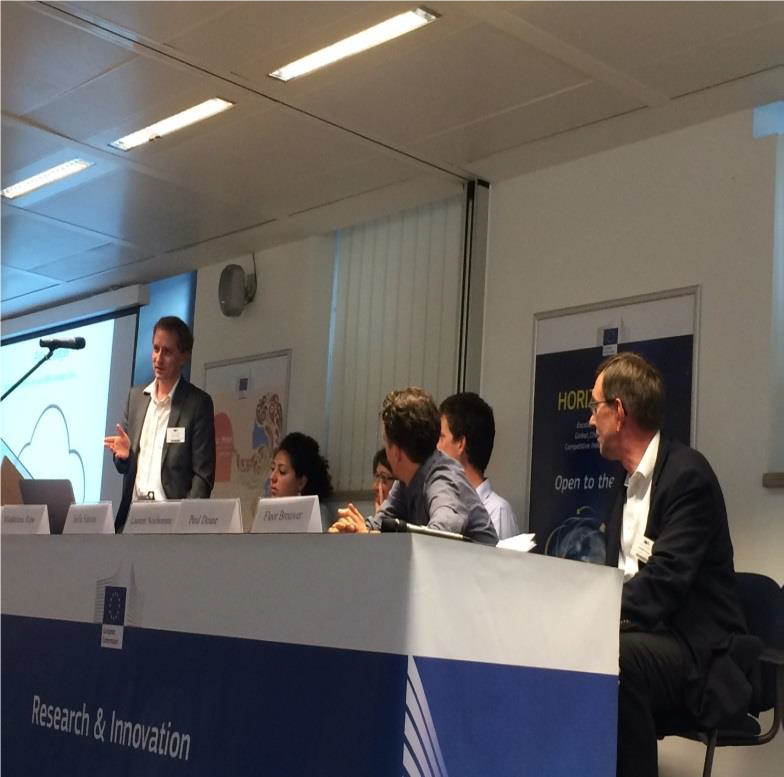
Hector Pollitt (Cambridge Econometrics) presented at a UNFCCC side event in Bonn on methodologies that could be applied to assess the impact of response measures implemented by member countries. The event was broadcast (audio only) on YouTube and attended by around 60-70 people from a range of countries that were interested in developing modelling capacity. In his presentation, Hector gave an overview of quantitative analytical approaches ranging from very simple calculations to highly complex modelling. He used the work being carried out in SIM4NEXUS for the Azerbaijan case study as an example of carrying out analysis in countries where there are data limitations. See also: http://unfccc.int/cooperation_support/response_measures/items/10354.php
SIM4NEXUS project partners met in Trebon, Czech Republic, the home of the meeting host and project partner ENKI. During the two days of active work, the partners took stock of the progress of work within Work Packages and Case Studies. Noting that important milestones have been reached in the first project year, including the finalisation of the first ‘fast track’ case study work in Sardinia, completion of the deliverables comprising the scientific inventory of the nexus interconnections and relevant EU and international policies, development of a common framework for nexus analysis within cases, first insights of market interest in SIM4NEXUS products and services, as well as further progress on impact-oriented communication and dissemination. The partners look forward to proceed with the work, as they are entering the core phase of the project with the final goal of developing a set of methods and tools to analyse and understand the nexus between water, energy, food, land and climate as well as the sustainable nexus policy options on international to local levels.
During the meeting s ‘SIM4NEXUS hero’ title was awarded to partners that have delivered exceptional effort and results within the first project year: Stefania Munaretto (PBL) for her work on nexus policy analysis, Maria Papadopoulou (UTH) on her work on Greek case study, as well as Simone Mereu and Antonio Trabucco (both UNISS) for their work on Sardina case study. Congratulations!
Prior to the project coordination meeting, the Work Package leads also met with the External Advisory Board in Prague.
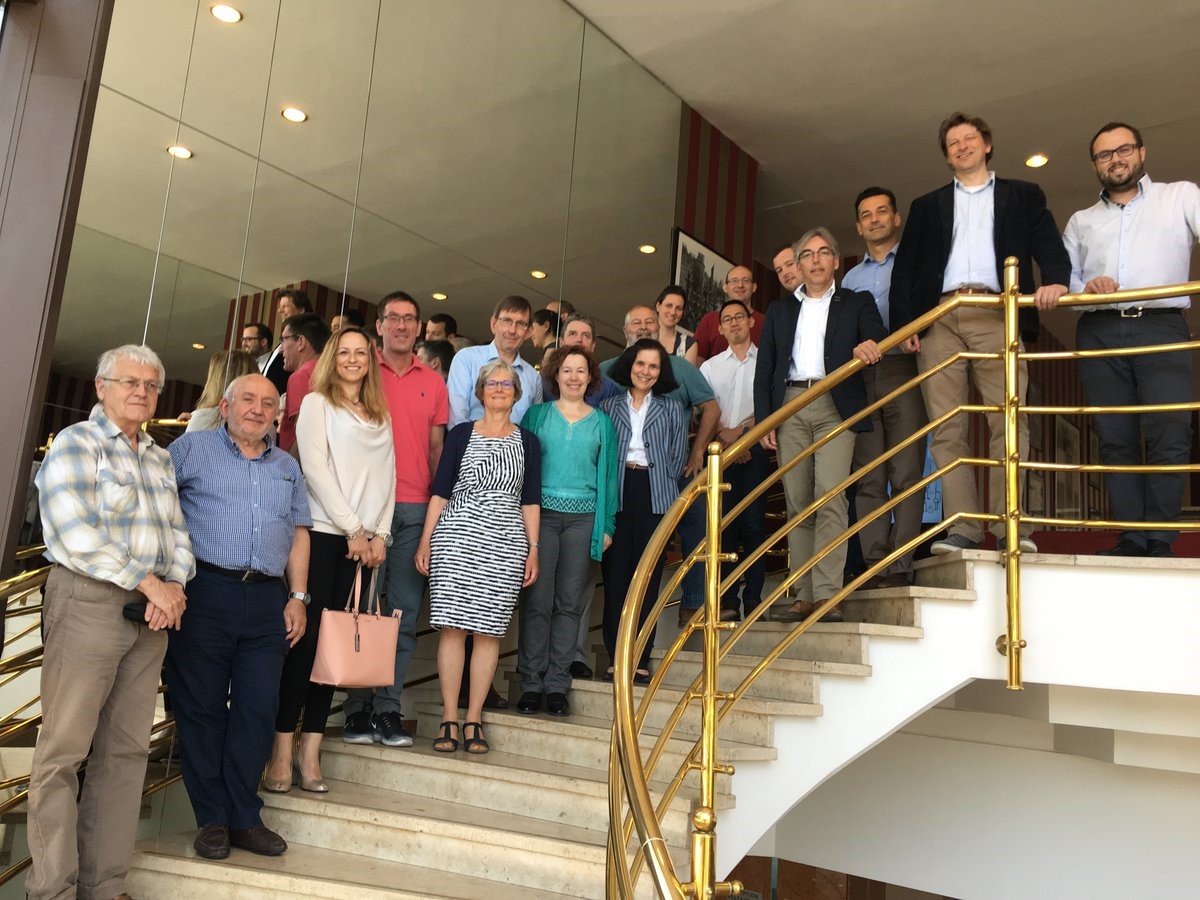
UNESCO-IHE has post-doc to work on SIM4NEXUS in WP3 (mainly). The Integrated Water Systems and Governance Department is looking for a Postdoctoral Researcher on integrated water-food-energy systems modelling (m/f) – 0.84 FTE (4 days per week). The candidate will work closely with Dr. Janez Sušnik (IHE Delft project leader) in developing system dynamics models for the 12 case studies involved in the SIM4NEXUS project. The case studies cover a range of scales from regional (e.g. south-west England) to national (e.g. The Netherlands), European and Global. Additional information can be obtained from Janez Sušnik, Deputy Head of the Integrated Water Systems and Governance Department (+31 (0)15 215 2368; j.susnik@un-ihe.org). Details on the application procedure can be found at: https://www.un-ihe.org/working-ihe-delft
Maria P. Papadopoulou (UTH) was invited to participate on March 28 in a round table on sustainable tourism and culture, organized by the Hellenic Greek Ministry of Tourism. She had the chance to present the SIM4NEXUS concept and the Greek case study to about 30 persons. The feedback she got from the Greek Authorities - mainly governmental (Ministries of Tourism, Foreign Affairs and Culture) - and the other participants from Serbia, Croatia, Italy and Slovenia was very positive. The presentation ‘Perspectives for the development of the Tourist Sector - SIM4NEXUS: Towards a Sustainable Economy and an Effective Use of Resources’ was well received.
The SIM4NEXUS project relies on modelling to understand how the different components of the Nexus (water-food-energy-climate) are affected under different scenarios in the case study regions. The outcomes of the modelling undertaken within the project will feed into the development of the Serious Game.
Two experts on SDM from the consortium – Lydia Vamvakeridou (UNEXE) and Janez Susnik (IHE Delft) will hold an online course from 3-4 May to facilitate the use of modelling in the case studies. The course will focus on explaining to the case study partners the different software packages, including STELLA or VENSIM.
On 5th of April Fresh Thoughts was invited (and attended) to a DG CLIMA workshop to provide inputs to the EU Adaptation strategy review, which is currently ongoing. Fresh-Thoughts represented SIM4NEXUS and provided inputs from the nexus perspective to this policy-making event.
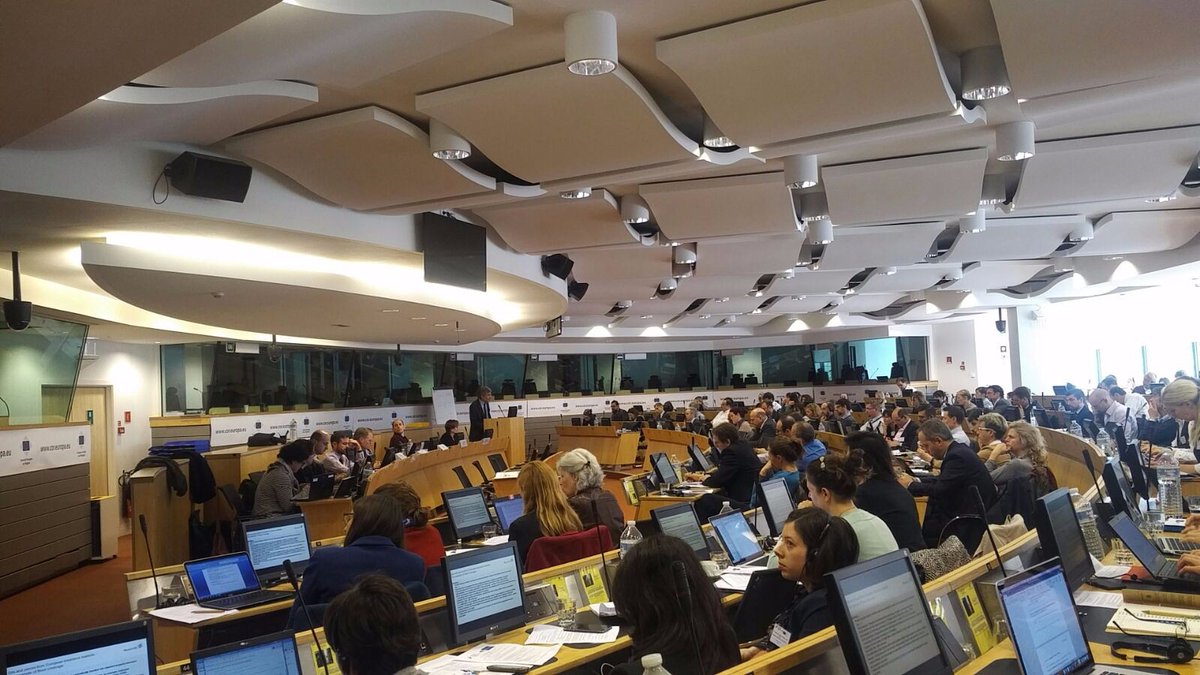
The Workshop took place on the 6th of April 2017, in Barcelona, Spain. The presentation was given by Xavier Domingo (EURECAT) at the Final Confernce.
For further Information please have a look at the presentation on our Slideshare Account.
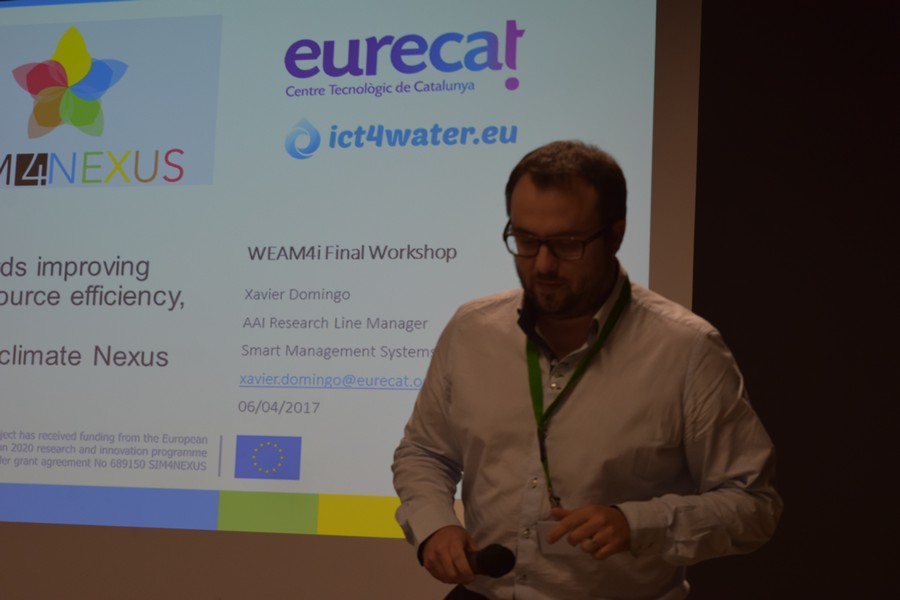
Nexus is the ‘new’ popular buzz word. Already present in the sustainable development discourse since the early 1990s, the concept has gained momentum in the scientific and policy circles over the the past ten years, especially in relation to the water, energy and food (WEF) domains.
Underpinning the nexus approach is the recognition that different sectors are inherently interconnected and must be investigated and governed in an integrated, holistic manner. Accordingly, nexus thinking entails a shift of focus towards sector and resource interdependences, with the aim of exploiting potential synergies, and managing critical trade-offs. Ensuring coherence of policy goals and instruments is crucial for a nexus approach. However, as for the nexus, a clear and consistent conceptual and analytical framework does not exist and empirical studies are scares.
The SIM4NEXUS project is a 4 years EU-funded project (started in 2016) developing knowledge and tools to understand and support policy-making in the water-land-energy-food-climate nexus. 12 case studies investigate nexus challenges and opportunities as well as policy coherence at global, EU, national and regional scale. The final product is a simulation game where users can learn about the impacts of policy choices across the different nexus sectors.
The talk will present the results of an investigation conducted within the project on coherence of EU and international policies in the water-land-energy-food-climate nexus. The talk will include some discussion about the conceptual definition of the nexus and of policy coherence as well as methodological approaches for empirical research.
The Joint Research Center and the MAGIC project (Moving Towards Adaptive Governance in Complexity: Informing Nexus Security) are hosting a working in Brussels on 20 April. The workshop “Debunking myths and interrogating the universality of global and local integrations” focuses on energy and energy policies inside the EU institutions. The aim of the workshop is to discuss different insights regarding heterodox narratives about energy and more in general sustainability.
Maria Witmer (PBL) and Eunice Ramos (KTH) are attending on behalf of the SIM4NEXUS consortium. They will report back to the consortium regarding the discussions and how they link to the nexus energy-water-climate-food.
Seven thematic models will be used to gain knowledge of the Nexus in each Case Study, under different climate change scenarios for 2030 and 2050. Results from the model runs will enable the identification of the main gaps in the Nexus and also contribute to the development of complex science tools within the project SIM4NEXUS.
Further information for each thematic model is available in section Outputs/ Deliverables.

The 15th International Conference on Environmental Science and Technology will be held in Rhodes, Greece from 31 August-2 September. This biennial conference brings together engineers, scientists, researchers, students, managers and other professionals in order to address and discuss emerging environmental issues. The main aim of the conference is the presentation of state-of-the art research and innovative technologies to address local and international critical environmental issues.
At the conference, there will be a special sesson on the Water-Energy-Land-Climate-Flood nexus. The purpose of this special session is to bring together researchers, professionals and policy makers in the field of water, energy, climate and food production sectors to first understand how water and energy management, food production, biodiversity, land use and climate are linked together and then propose sustainable approaches, actions and measures to address the multi-dimensional nexus issues as described by the post-2015 Sustainable Development Goals through innovation and uptake of technologies and policies.
Chrysi Laspidou and Maria Papadopoulou from SIM4NEXUS will co-chair the session.
Presentations can be found here:
- CEST2017 Presentation
- AQUA REPUBLICA: Serious Game (in Greek)
- The conceptual context of Nexus for Greece (in Greek)

SIM4NEXUS partners Floor Brouwer, Wageningen Economic Research, Dragan Savic, University of Exeter and Gabriel Anzaldi, EURECAT attended the Waterwise Annual Water Efficiency Conference and ICT4Water Cluster Event on the 8th of March 2017 in London. The 2017 Waterwise Annual Water Efficiency Conference focused on “Delivering Water Efficiency projects and programmes”. The event provided key stakeholders within the water sector an opportunity for key to come together to discuss how to further water efficiency in the UK.
The Conference also hosted the European ICT4Water Clustering event, of which SIM4NEXUS is a member. The session looked at using applied research and practical experience to optimise the implementation of water efficiency projects for households, business and agriculture. Dragan Savic (UNEXE) chaired the Research and Innovation session, identifying how existing research activities (including the ICT4Water projects) can feed into water utility work. Floor Brouwer held a short presentation on "How to improve Resource Efficiency". In addition, during the event Gabriel Anzaldi (Eurecat) outlined the ‘Action Plan to Digital Single Market’, as SIM4NEXUS is going to feed into this plan in the coming months.
Some 90 participants from the water business sector, public policy and research showed a great interest into the Nexus of water-energy-food, and 7 EU-funded projects currently address the water-energy Nexus.
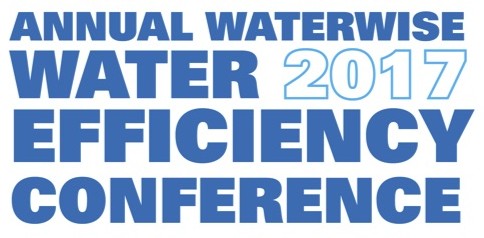
The Global Stock-taking Workshop on assessments of the water-food-energy-ecosystems nexus and response measures in transboundary basins took place in the Palais des Nations in Geneva on 6 and 7 December 2016. The workshop was then followed by the fourth meeting of the Task Force on the Water-Food-Energy-Ecosystems Nexus on December 8th. The KTH team working on the SIM4NEXUS project had the opportunity to communicate their nexus methodology and share ideas with institutes that have conceptualised comparable integrated assessment approaches, and with country delegates involved in the nexus assessments.
Claudia Teutschbein (UU) presented SIM4NEXUS (background, approach and methods) and more specifically the Swedish Case Study to staff members at Uppsala University. The Swedish case study focuses on forest-water-energy issues in a changing climate. The audience - consisting mainly of physical geographers, meteorologists, hydrologists and environmental scientists - were amazed about the ambitious efforts of SIM4NEXUS to combine such a wide range of both NEXUS-relevant issues and methodologies within social, political and natural sciences. There was broad consensus on the fact that Sweden is currently facing the challenge of achieving the agreed upon Environmental Quality Objectives for water and forests by 2020 because present environmental initiatives are not sufficient. After the presentation, participants shared their experience with stakeholder engagement and provided useful feedback on how to actively involve more stakeholders in the Swedish case. Suggestions were also made regarding testing of the serious game with different student groups at Uppsala University.

Organised by the Hungarian Government in cooperation with the World Water Council, the Budapest Water Summit is the first global conference summarising the results of the UNSDGs (in particular, Goal #6: Clean Water and Sanitation) since they were implemented in 2015. At the conference, the aim was to set out tasks with targets to be achieved for the next 15 years.
The Summit’s mission: Water shall be the source of cooperation, peace and development for all nations committed to sustainable development.
In the session on "More production with less water consumption? Implications of the Paris Agreement on the Water - Energy – Industry triangle.", Chengzi Chew from DHI gave a presentation on "Serious gaming for serious impacts", with links to the Nexus approach.
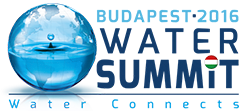
Two Horizon2020 projects: SIM4NEXUS and MAGIC are jointly co‐ordinating the Nexus working group (WG) ‘Water Energy Food Biodiversity nexus’ of the Water Supply and Sanitation Technology Platform (WssTP), a SIM4NEXUS partner. The two projects are jointly co‐ordinating the working group, in a rotating structure. Both projects have designated a core group of key contributing persons. The SIM4NEXUS core group includes Floor Bouwer, Wageningen Economic Research, Lydia Vamvakeridou, University of Exeter, Chrysi Laspidou, University of Thessaly and Gabriel Anzaldi, EURECAT.
On 24 November 2016, the working group held a meeting in Brussels introducing the two projects and holding discussions on the work plan for year 2017. It addition, the group discussed potential further cooperation building on common synergies in nexus research, nexus knowledge, dissemination and creating impact. The meeting was chaired by the SIM4NEXUS Coordinator Floor Brouwer; Chrysi Laspidou held a presentation introducing the project and Lydia Vamvakeridou led the discussion on enhancing synergies.
The next meeting of the working group is scheduled for June 2017.
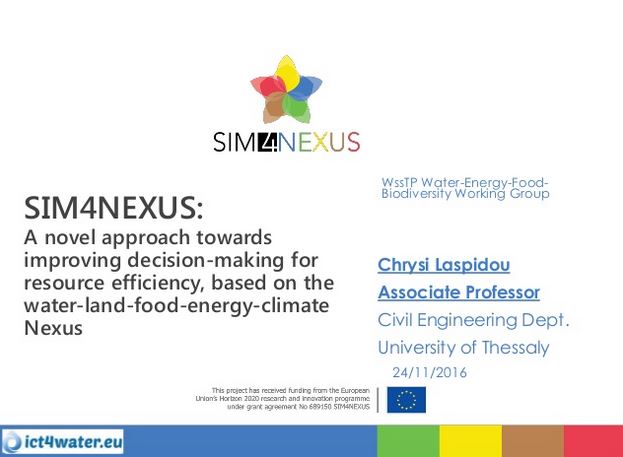
Maria Papadopoulou (UTH) presented the SIM4NESUS project to a large audience at the 1st Conference of the National Rural Network 2014-2020 "Networking to promote innovation in rural areas'', which took pace in Athens, Greece on 21 November 2016. The feedback from the policy authorities, agricultural unions and also other research institutes that were present was extremely high. They were excited with the SIM4NEXUS concept, and they are looking forward to be part of the case study in GReece. Maria and colleagues are planning to have small informative meetings targeted at stakeholders from agriculture in 3-4 locations all over the country to keep them "on board" until our first workshop (Spring 2017) when the first results from the models will be presented and they will be able to get a more clear picture of the Serious Game.
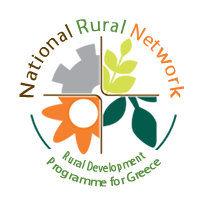
About 45 consortium members met in Barcelona on November 16 & 17 to work on the 12 case studies. The event was hosted by EURECAT in its inspiring premises in Barcelona. Wednesday morning sessions were dedicated to the thematic models: 3 hours of high-level science to understand our future! The Plenary session focused on the case studies “roadmap”, describing the scientific assessments and stakeholders processes to be followed by all. The workshop on Wednesday helped the project to better understand the offer from the thematic models, and how to make this tangible and prepare for its implementation. Thursday morning was spent working in small groups on tools and methodologies for the “policy-assessment” component of the case studies.
On Friday, November 18, the partners from the SIM4NEXUS project came together to discuss progress in the project overall and to discuss future steps in the project leading up to the next project meeting, which will take place in May 2017.
All Partners look forward to continue the work and to see each other again.
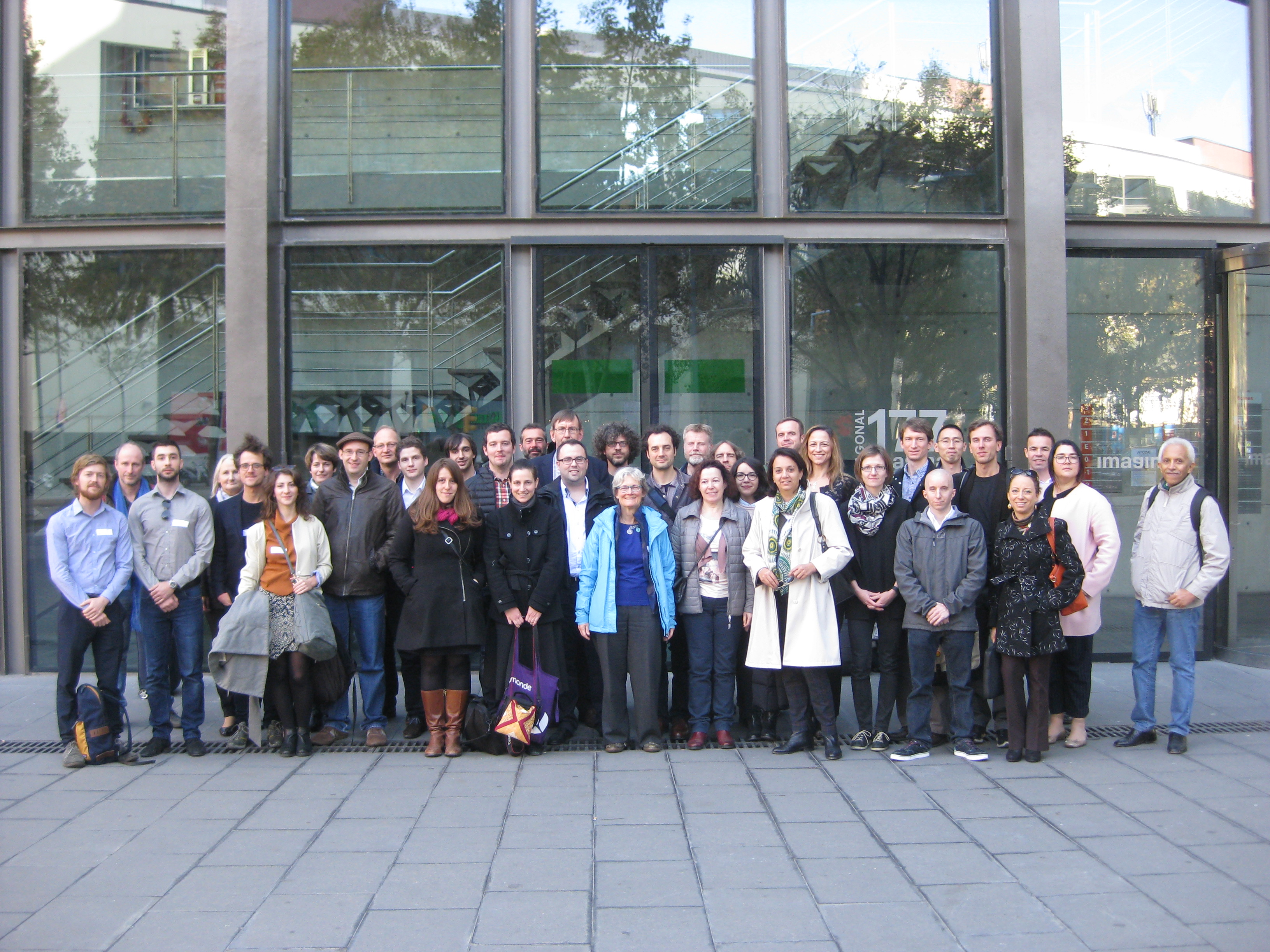
Chrysi Laspidou, a SIM4NEXUS partner from the University of Thessaly, attended the IWA World Water Congress 2016, which took place in Brisbane Australia from 9-13 October 2016. Chrysi held a presentation at the Intermittent Water Supply Open Meeting, informing participants of the purpose, objectives and deliverables of SIM4NEXUS project and exchanging ideas and thoughts on the way forward in assisting water utilities and governments in improving the level of service to the consumers and water supply conditions in general. The presentation highlighted policies and how the water-energy-land use-climate nexus influences intermittent water supply.

The Royal Geographic Society held its Annual Conference from 29 August to 1 September 2016 in London. The main theme this year was "Nexus Thinking". Lydia S. Vamvakeridou-Lyroudia held a presentation in the Session "Water Energy and Food Nexus: Dealing with a wicked problem? (1): WEF NEXUS Thinking: UK and International Perspectives".
Click on the download link below to view her presentation.
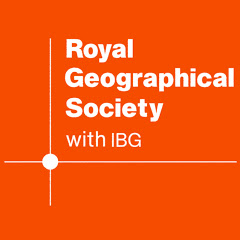
A new project “Sustainable Integrated Management FOR the NEXUS of water-land-food-energy-climate for a resource-efficient Europe (SIM4NEXUS)” has been selected by the European Commission to sign a Grant Agreement for an overall grant of nearly € 8,000,000. The project, which involves 26 partners from 15 countries is led by Wageningen UR (The Netherlands), will start in May 2016 and run for 4 years.
SIM4NEXUS will develop innovative methodologies to facilitate the design of policies and bridge knowledge and technology gaps in the field of the water-land-food-energy-climate Nexus under climate change conditions. The project aims to develop a methodology of integration using a complexity science approach and a Serious Game, as an integrating tool for testing and evaluating policy decisions. The Serious Game will be operable at different scales ranging from regional to national, to continental, to global, as well as at different time horizons—short, medium and long-term.
“SIM4NEXUS has 4 objectives”, explains George Beers, the Project Coordinator, “namely to adopt existing knowledge and develop new expertise on the Nexus, to reduce uncertainties of how policies, governance and institutions affect complex changing environmental systems, to showcase the implementation by a network of regional and national case studies in Europe and to valorise the project outputs by creating project spinoffs.” Such approach is in the core of the EU research and innovation policy, as “this is an ambitious and challenging project which positions European research and business as frontrunners at the global level”.
The 26 partners of SIM4NEXUS are from 14 countries (NL, EL, UK, DE, ES, IT, JP, SE, CZ, DK, FR, AT, LV and BE), namely: Wageningen UR, NL; University of Thessaly, EL; University of Exeter, UK; Stichting IHE Delft, NL; Potsdam-Institut für Klimafolgenforschung, DE; Universidad Politécnica de Madrid, ES; Bocconi University, IT; United Nations University /Bonn, JP; University of Cambridge, UK; KTH Royal Institute of Technology, SE; Uppsala University, SE; Eurecat, ES; University of Sassari, IT; ENKI, CZ; Netherlands Environmental Assessment Agency, NL; DHI Group, DK; South West Water, UK; ACTeon, FR; Epsilon Malta Limited, MT; Cambridge Econometrics, UK; Radbourd University, UK; Strane Innovation, FR; Fresh Thoughts, AT; Baltic Environmental Forum Latvia, LV; People & Water, SK; Water and Sanitation Technology Platform, BE.
